 Sign in
Sign in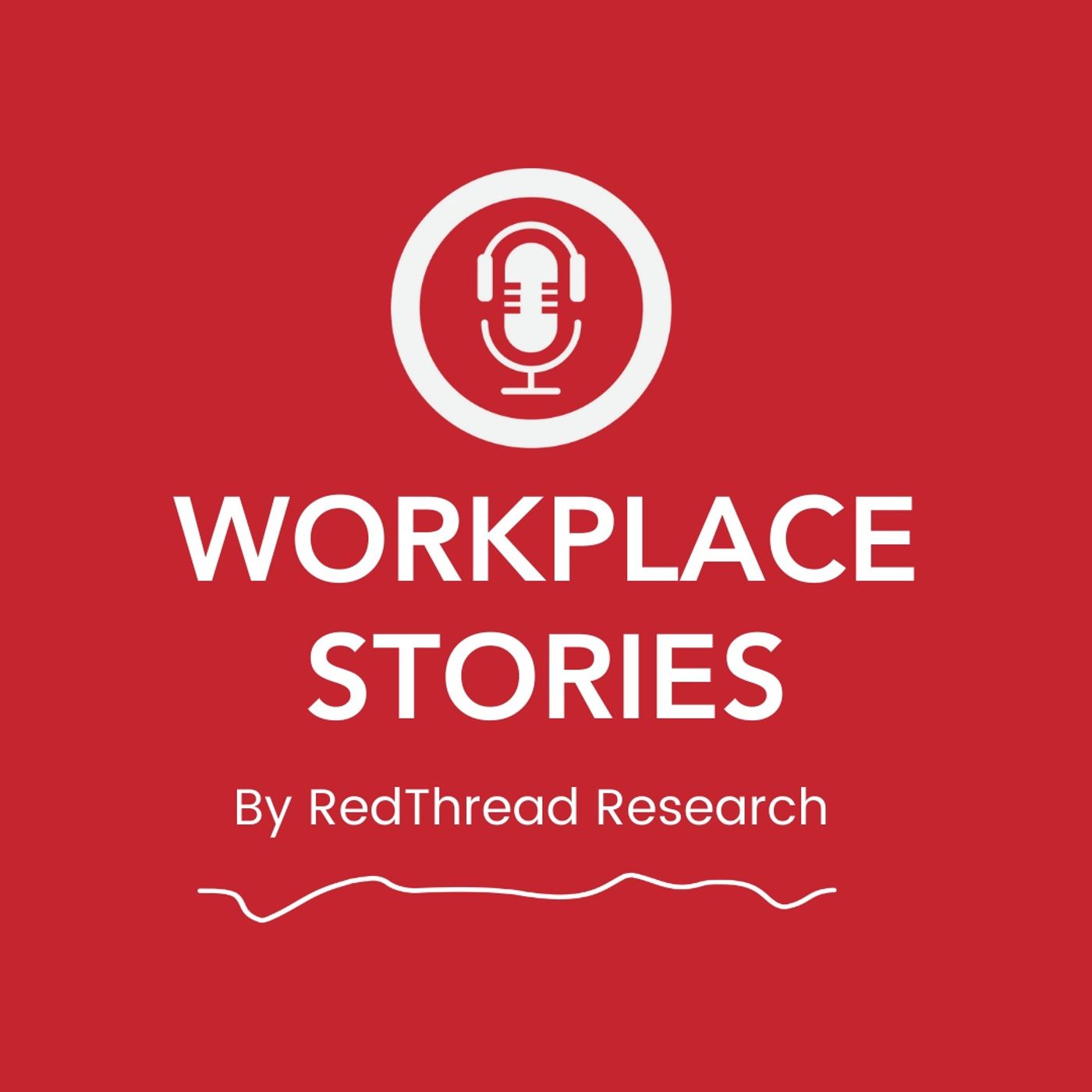
Business
Stacia Garr & Dani Johnson
At RedThread, we love our data, but we know that what you remember is stories. So we spend time listening to thinkers, writers, leaders, and practitioners as they tell their stories about what works in the workplace, what they’ve learned, and what they hope to see in the future. We hope you find it inspirational, motivational, and a touch irreverent.
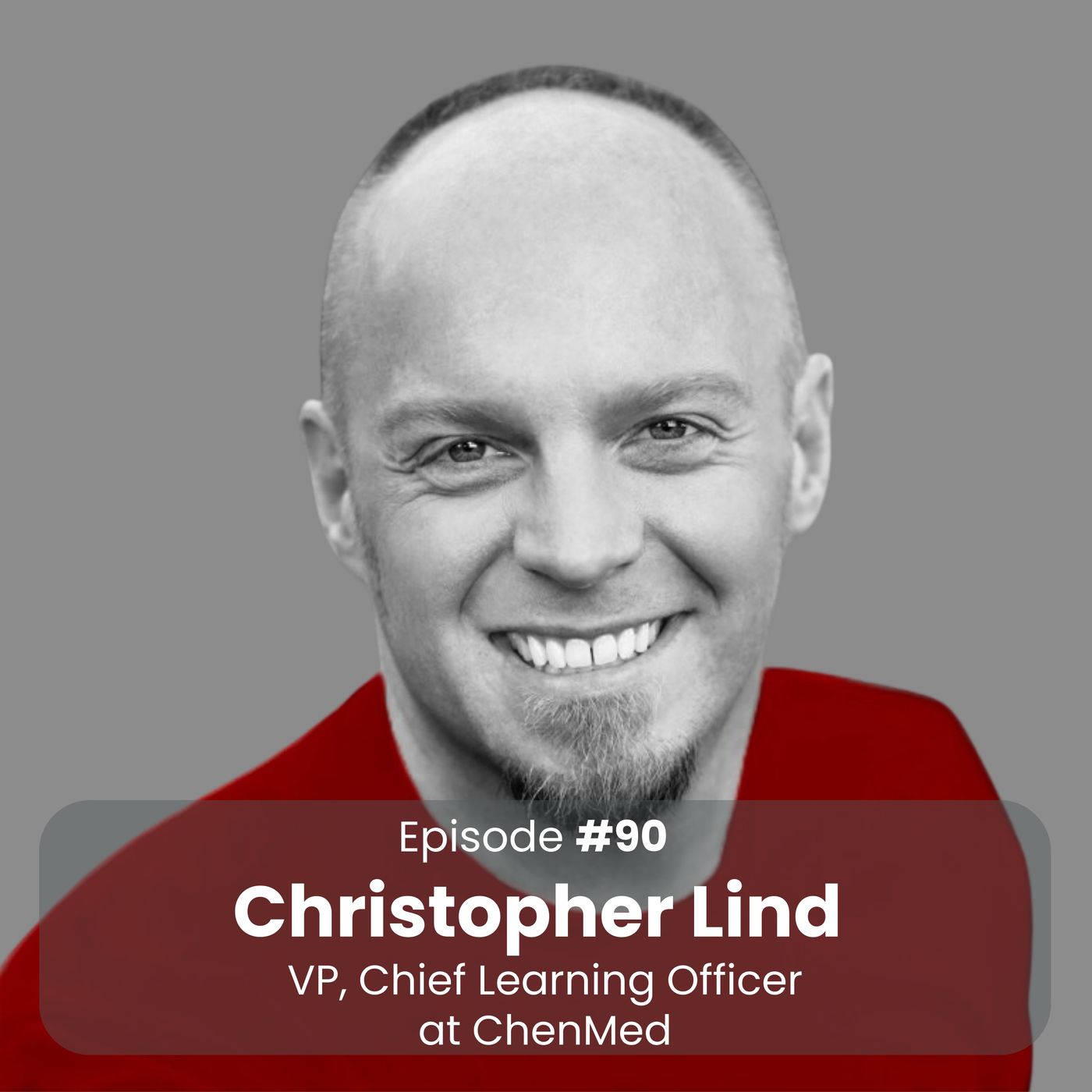
The Biggest Mistakes Companies are Making with AI with Christopher Lind
What happens when AI moves faster than the people who implement it? Christopher Lind, executive advisor and industry expert, shares stories of organizations that got it wrong—sometimes with devastating consequences.From replacing entire teams with AI to accelerating broken processes, the conversation reveals how quickly things can unravel when technology outpaces understanding. At the same time, there’s tremendous opportunity if AI is handled with care.We explored what it takes to keep humans at the center of the work while letting AI handle repetitive tasks. This isn’t about avoiding AI—it’s about understanding how to use it in a way that aligns with our goals, values, and the irreplaceable need for human relationships.You will want to hear this episode if you are interested in...Why AI experts are often the most skeptical [0:56]How generative AI can quickly magnify problems [1:30]Whether AI should serve us or the other way around [2:00]Why measuring AI’s true cost is so tricky [3:20]How you might unknowingly rely on AI daily [8:42]Preparing for the changes AI will bring to jobs [15:00]What happens when automation goes wrong [35:17]How one company’s overuse of AI caused failure [39:10]Whether AI’s logic is misunderstood or alien [44:00]Resources & People MentionedPodcast: Future Focused with Christopher LindRadiolab’s "Shell Game" EpisodeConnect with Christopher LindLinkedIn: Christopher LindConnect With Red Thread ResearchWebsite: Red Thread ResearchOn LinkedInOn FacebookOn TwitterSubscribe to WORKPLACE STORIES
48:3520/11/2024
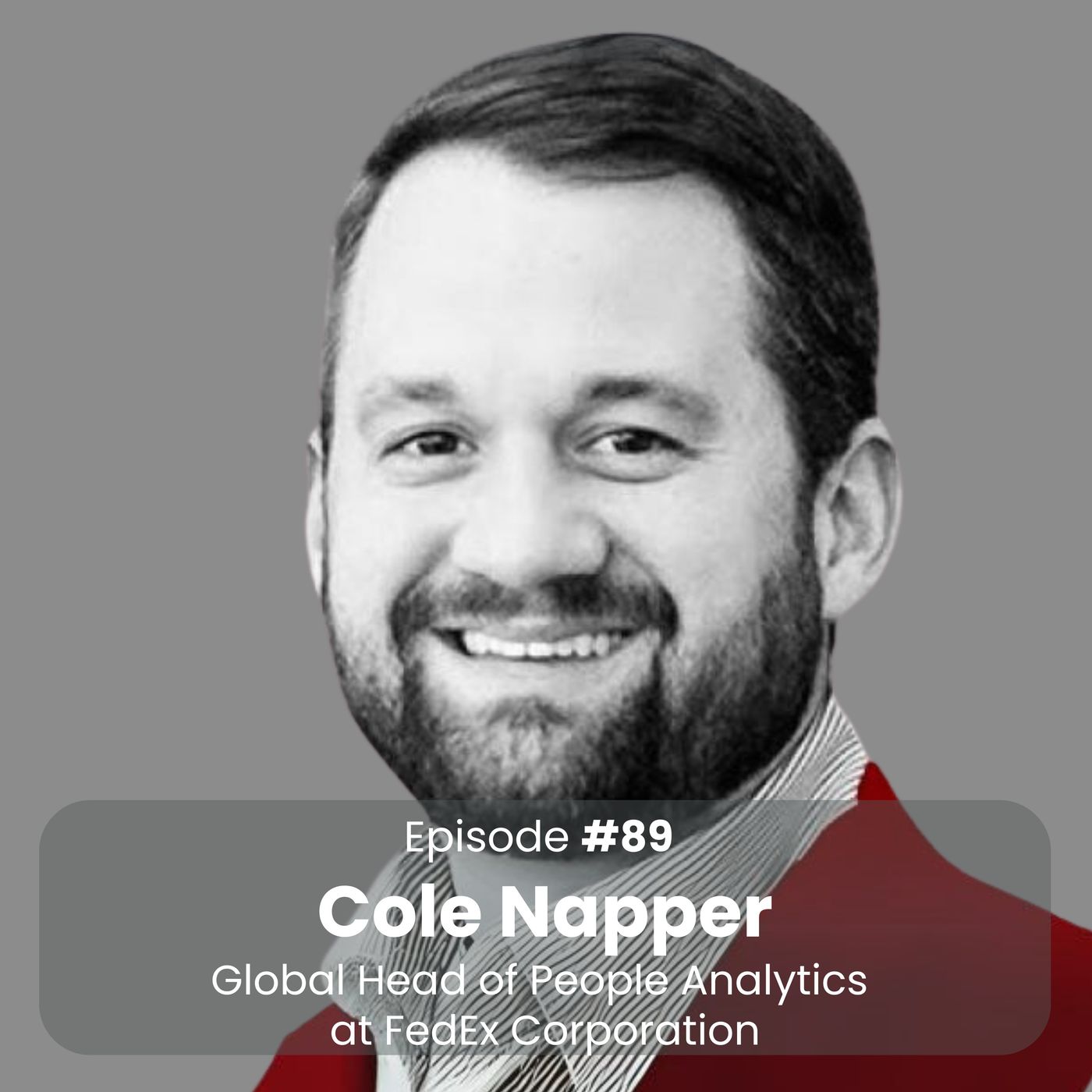
People Analytics & AI’s Real-World Impact at FedEx with Cole Napper
Cole Napper, FedEx’s Global Head of People Analytics, joined us to explore the real versus ideal roles of AI in HR and people analytics, focusing on practical application and real-world impact. Cole highlighted AI’s current limitations, especially the problem of “anti-productive work,” where technology demands extra effort rather than reducing it. His perspective emphasizes the need for critical thinking in analytics to ensure AI truly serves organizational goals.Cole also talked about the structural improvements required to enhance data quality and discussed how people analytics teams need to evolve for AI to make a meaningful difference. His pragmatic vision challenges the hype surrounding AI and reframes it as a tool to support strategic decision-making rather than an all-encompassing solution.You will want to hear this episode if you are interested in...Introducing our conversation with Cole Napper of FedEx [00:22] Why AI should focus on productive work [02:10] How specialized agents could reshape HR technology and analytics workflows [03:10] Whether we are expecting too much from AI too soon in people analytics [07:00] The disconnect between vendors’ AI promises and actual user experience [08:20] Whether AI is driving value within organizations or merely adding costs [14:00] Why critical thinking is a core skill for leveraging AI in people analytics [17:10] The "Inquisitor and Change Agent" model and how it improves analytics impact [21:10] How AI can evolve from repetitive data tasks to strategic roles [22:00] Whether modular tools and specialized AI agents could be the future [41:30] Resources & People MentionedDirectionally Correct podcast by Cole Napper and Scott Hines"The Alchemist" by Paulo CoelhoNvidiaConnect with Cole NapperCole Napper on LinkedInConnect With Red Thread ResearchWebsite: Red Thread ResearchOn LinkedInOn FacebookOn TwitterSubscribe to WORKPLACE STORIES
49:3606/11/2024
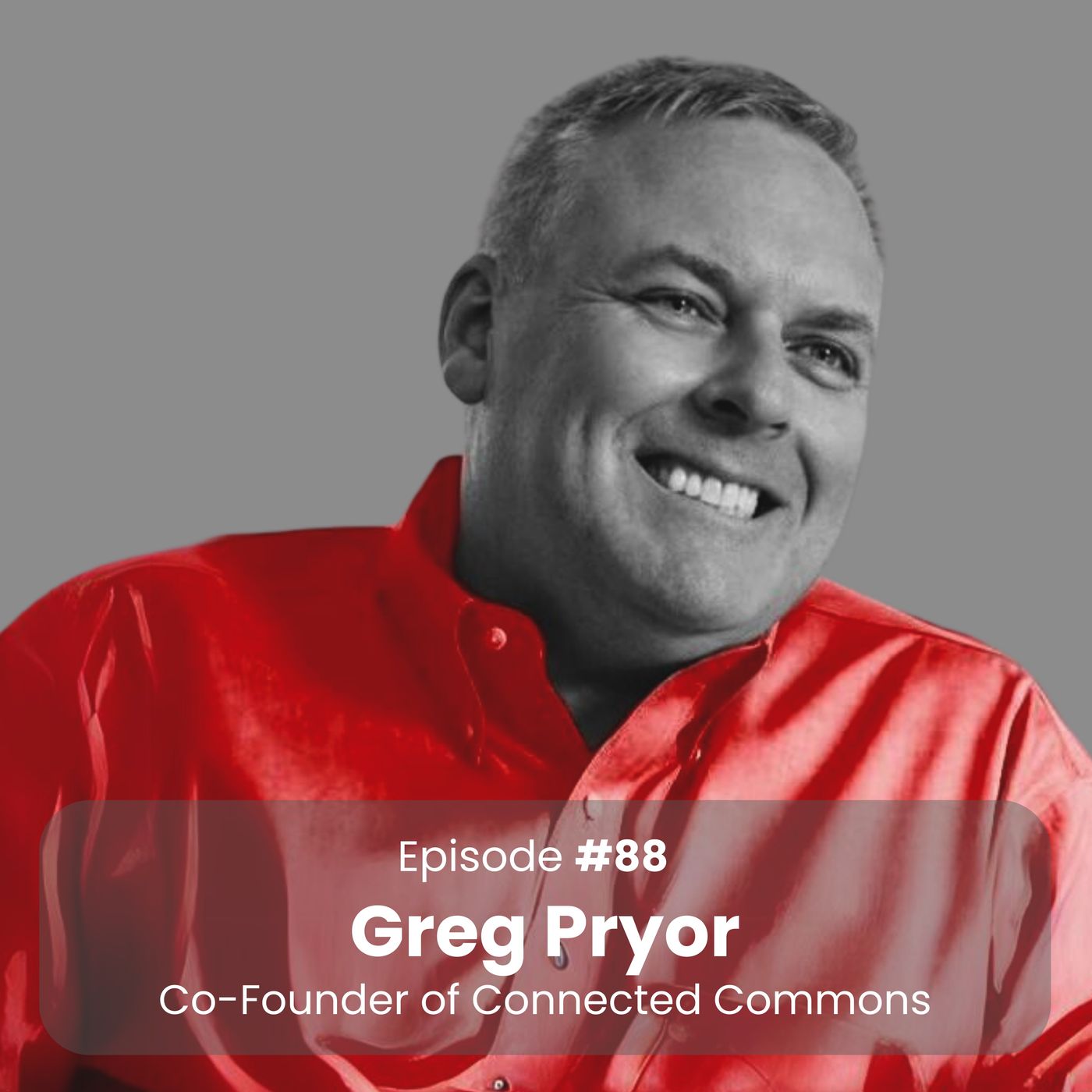
Why Social Network Perspective Matters with Greg Pryor
Could your network be the key to your career success and organizational growth? In this episode of Workplace Stories, we chat with Greg Pryor, author of the upcoming book, “The Social Capital Imperative.” Greg explains how social capital—our connections and relationships—drives business outcomes, sparks innovation, and boosts career growth. With the pandemic reshaping work, he argues that shifting from internal networks to open, cross-functional ones is crucial for success today.Greg shares practical strategies for making network-building accessible to individuals, teams, and organizations.He highlights how AI and technology can help unlock the potential of networks, focusing on measurable outcomes. His passion for helping organizations harness the power of social networks makes a strong case for why networks matter in the modern workplace.You will want to hear this episode if you are interested in...How focusing on people and networks—not just technology—drives workplace results [1:00]Nine key use cases for network analysis, ranging from career growth to cultural change [2:40]How Post Malone’s collaborations illustrate the power of networks in boosting success [9:00]How “energizing influencers” like Dolly Parton can spark organizational transformation [14:00]How the pandemic shifted networks from open to closed, impacting innovation [29:00]Building networks for career growth, even without organizational support [39:20]How AI can make network analysis more accessible and actionable [44:18]Resources & People MentionedThe Social Capital ImperativeOrganizational Network Analysis (ONA)Amy Edmondson’s work on Psychological SafetyRob Cross - network analysis expertJohn BoudreauConnect with Greg PryorGreg Pryor on LinkedInConnect With Red Thread ResearchWebsite: Red Thread ResearchOn LinkedInOn FacebookOn TwitterSubscribe to WORKPLACE STORIES
47:1823/10/2024
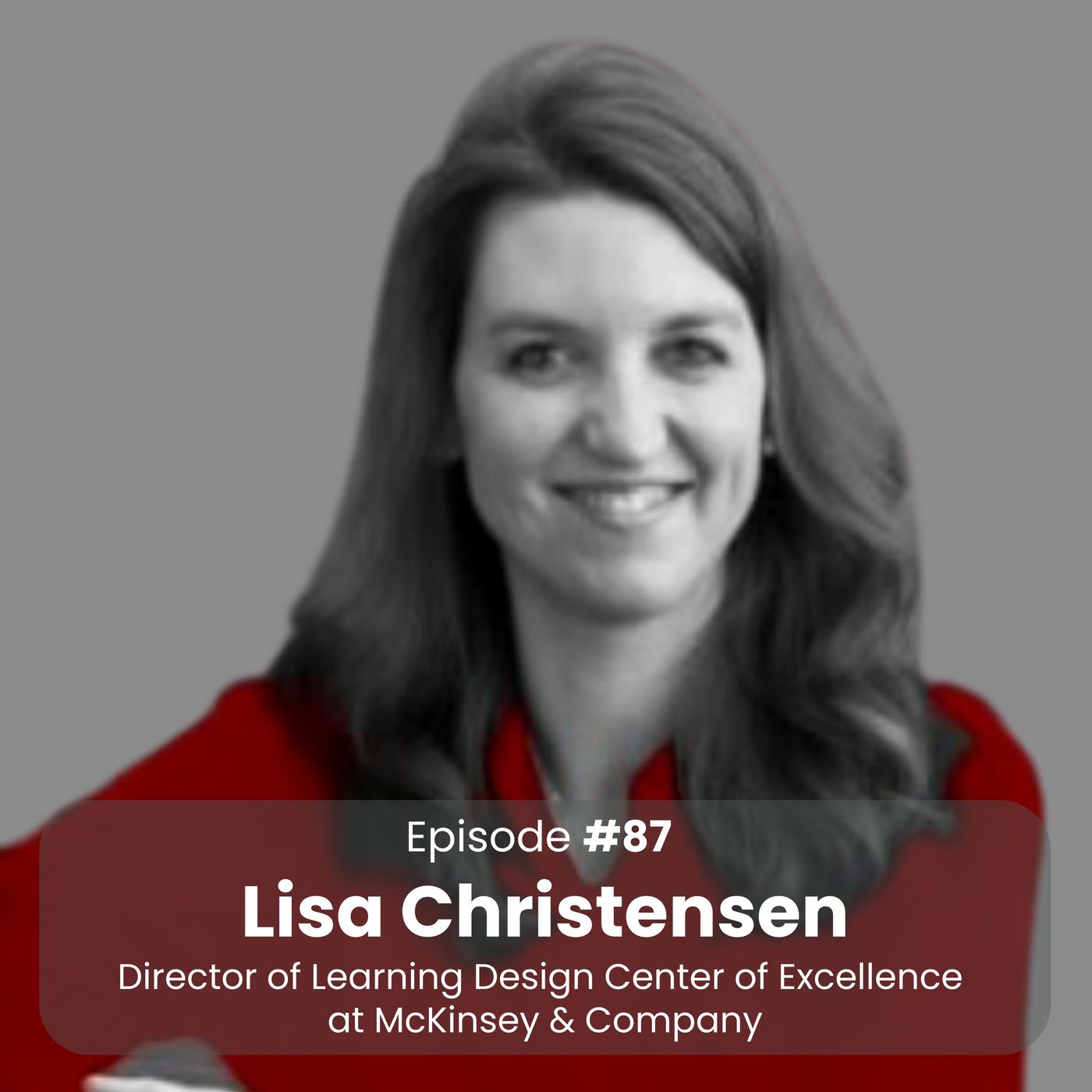
Redefining Learning and Development at McKinsey: Lisa Christensen
What if your L&D team could shift from merely delivering training to truly driving your company’s strategic goals? In this conversation, we talk with Lisa Christensen, McKinsey’s Director of Learning and Innovation. Lisa takes a refreshingly strategic approach, asking not just how L&D can support learning but “To what end?” She shares how her focus on outcomes over output has reshaped McKinsey’s approach to everything from people analytics to building a strong feedback culture.We also talk about why L&D should embrace experimentation, moving far beyond traditional course delivery to tackle big organizational challenges. Lisa makes the case for L&D to collaborate closely with People Analytics and Legal to ensure that learning initiatives aren’t just reactive but strategically positioned for future growth. Her “no regrets” actions offer useful, bold steps for L&D leaders, inspiring us to see the function as a driver of both human and organizational transformation.You will want to hear this episode if you are interested in...Why McKinsey's L&D team always starts with the question, "To what end?" [1:00]The risk of L&D focusing only on short-term skill needs [15:00]Collaboration with People Analytics transforming L&D's impact [18:00]L&D teams losing their value by sticking to outdated metrics [20:00]What it means for L&D to have an experimental mindset [31:00]How L&D leaders can ensure their department's stability and credibility [37:00]The “no regrets” actions every L&D team should consider right now [43:00]Resources & People MentionedOliver Wyman Report on Workforce FutureMcKinsey’s Learning & Innovation Center of ExcellenceConnect with Lisa ChristensenConnect with Lisa Christensen on LinkedInConnect With Red Thread ResearchWebsite: Red Thread ResearchOn LinkedInOn FacebookOn TwitterSubscribe to WORKPLACE STORIES
46:4609/10/2024
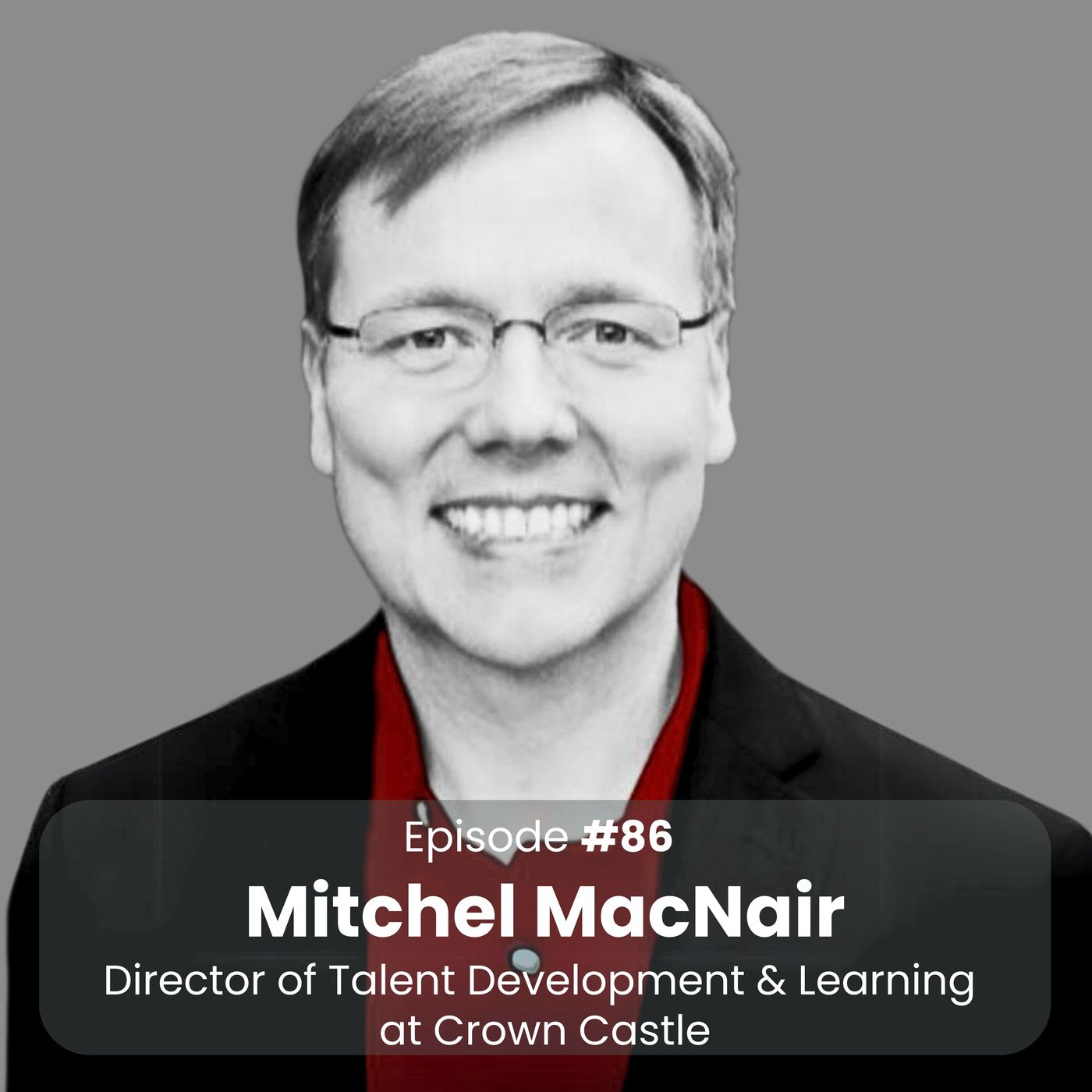
Mitchel MacNair: Crown Castle - Making Employee Development Strategic
How do you turn a skeptical organization into a believer in the power of Learning & Development? We interviewed Mitchel MacNair, Director of Talent Development and Learning at Crown Castle to find out. Mitchel takes us on a journey from his unconventional background in nuclear engineering and the Navy to leading transformational change in L&D. He tells us how he reshaped Crown Castle’s learning function by aligning it with business strategy, building credibility through data-driven results, and elevating its impact across the organization. You will want to hear this episode if you are interested in...How Mitchel’s background in the Navy prepared him for L&D leadership [4:35]Handling the loss of 50% of the L&D team within Mitchel’s first six months [6:20]How organizational chaos impacts strategic L&D changes at Crown Castle [9:29]Transforming L&D from "order takers" to strategic business partners [10:58]The role of the principal designer in Crown Castle’s L&D success [13:20]Collaborating with other functions to focus on outcomes [15:10]Why obtaining business performance data early is critical for L&D success [18:17]Demonstrating a 192% increase in services sold through L&D programs [23:00]How Crown Castle developed their AI policies [35:10]L&D’s role in Crown Castle's skills strategy and future talent planning [41:00]Resources & People MentionedIs Your Genius at Work by Dick RichardsNick Shackleton-Jones (LinkedIn Thought Leader)Connect with Mitchel MacNairMitchel MacNair on LinkedInConnect With Red Thread ResearchWebsite: Red Thread ResearchOn LinkedInOn FacebookOn TwitterSubscribe to WORKPLACE STORIES
44:1525/09/2024
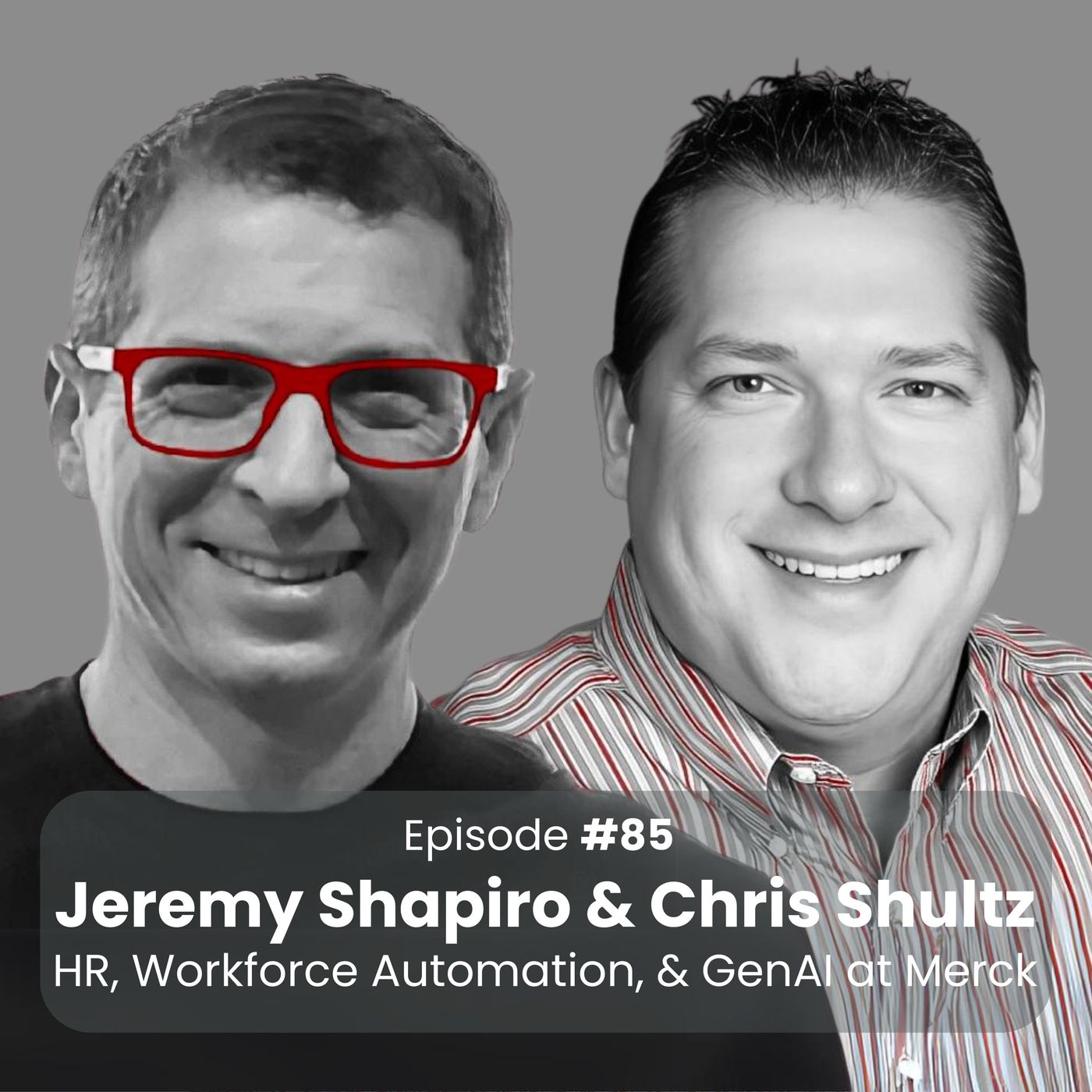
HR, Workforce Automation, and GenAI at Merck: Jeremy Shapiro & Chris Shultz
Jeremy Shapiro, AVP of Human Resources and Workforce Analytics, and Chris Shultz, Director of HR Intelligent Automation and Gen AI at Merck join us in this forward-thinking conversation. Learn how (and why) Merck is embracing AI to streamline HR processes, support innovation, and maintain ethical considerations. This was hugely educational for us and we hope you get a glimpse into the future of HR tech.You will want to hear this episode if you are interested in...What does the future of HR look like in an AI-driven world? [1:17]How can AI serve as a translator and guide for HR professionals? [7:47]How Merck ensures AI is implemented responsibly [8:51]How Merck leveraging AI for massive efficiency gains in HR [12:45]How Merck determines what AI solutions to build internally [16:54]Can HR keep pushing the efficiency frontier with AI, or is there a limit? [19:19] How organizations can support the mental well-being of AI engineers [25:16]How ethics play a crucial role in the development of AI [31:12]What key strategies should HR leaders focus on in the next six months? [37:03]Resources & People MentionedKeith McNulty’s (McKinsey & Company) post about the bias of LLMsBCG’s Research on AI in the workplaceGlint (HR tool)Workday (HR tool)Connect with our GuestsJeremy ShapiroChris ShultzConnect With Red Thread ResearchWebsite: Red Thread ResearchOn LinkedInOn FacebookOn TwitterSubscribe to WORKPLACE STORIES
42:3111/09/2024
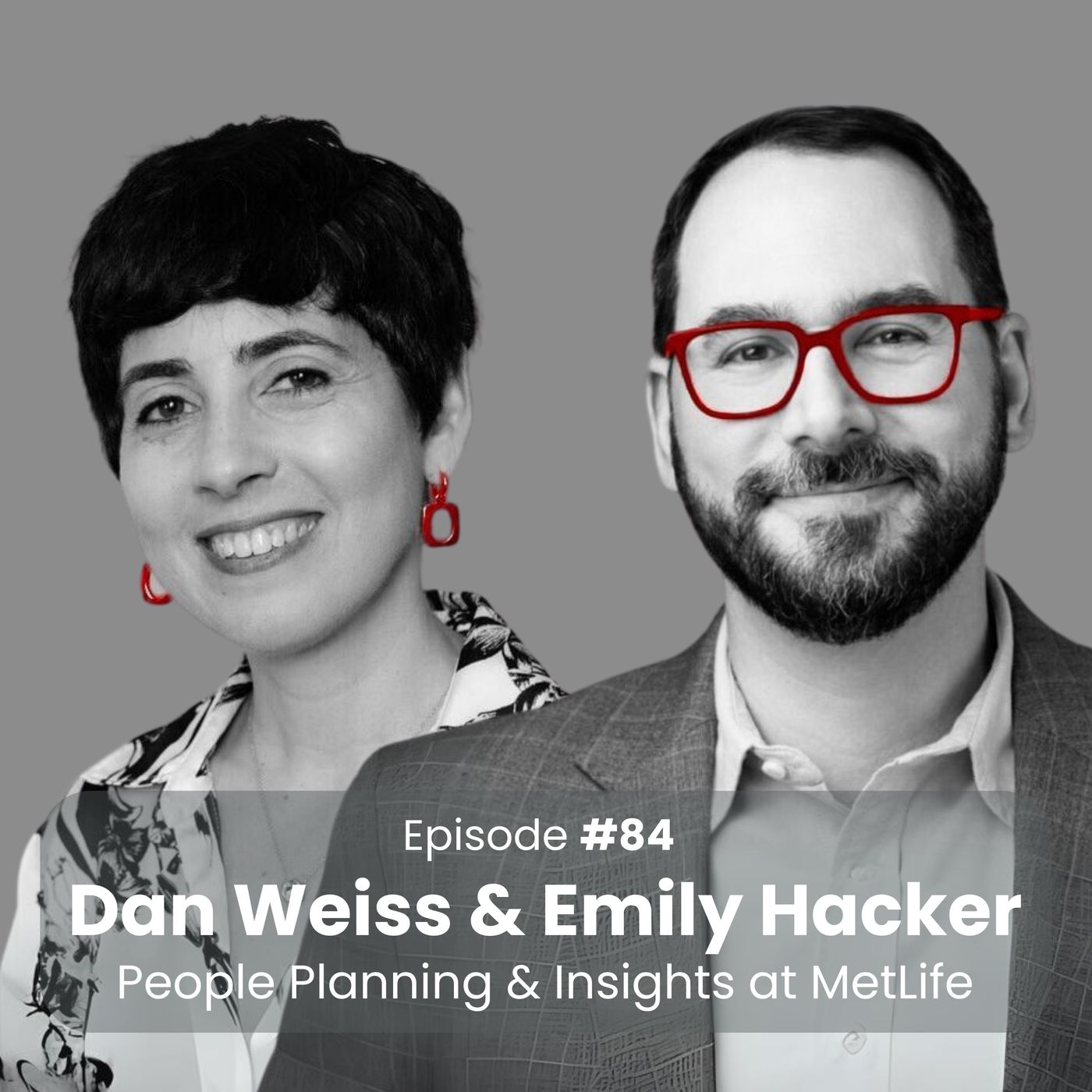
The Critical Role Data Plays in Skills Development: MetLife’s Emily Hacker and Dan Weiss
Skills data can be used to raise the bar in talent acquisition, implement data-driven learning, make strategic workforce planning decisions, help employees reach career aspirations, and much more. Too many organizations are so glued to the idea of perfection that they won’t implement imperfect programs to gather skills data. Dan Weiss and Emily Hacker believe that this mindset is useless.Your skills data won’t be perfect—but it can still be useful and helpful to employees. They share exactly why in this episode of Workplace Stories. You will want to hear this episode if you are interested in...Join the RedThread Research Community! [2:53] Learning more about Dan Weiss and Emily Hacker [3:35] Transforming culture before building infrastructure [9:07] How the MetLife culture championed the process [13:23] Their current pilot and the vision for the future [16:40] The lightning round [25:46] How to get buy-in from leadership [30:09]The critical role data plays in skills development [33:09] Their data sources and how they’re using them [36:43] Where does the data live? [40:43] The biggest thing Emily and Dan have learned [43:35] Why Emily and Dan do the work they do [44:26] Resources & People MentionedJoin the RedThread Research Community! Employee Benefits Trends Study Connect with Emily Hacker and Dan WeissConnect with Emily on LinkedInConnect with Dan on LinkedInConnect With Red Thread ResearchWebsite: Red Thread ResearchOn LinkedInOn FacebookOn TwitterSubscribe to WORKPLACE STORIES
46:2428/08/2024

Operationalizing AI Experimentation: Harvard Business Publishing’s Angela Cheng-Cimini
Generative AI is taking the world by storm, and the realm of HR is no exception. The use of AI will change a business and it will impact teams. That’s why Angela Cheng-Cimini seeks to answer the question, “How do you make sure your teams are positively impacted by AI?”A lot of the conversation starts with mitigating the fear that surrounds AI. Angela believes one of the ways you can get people to run toward generative AI is to create a safe environment where they can play with it and be amazed by its capabilities. Then, they’ll want to integrate it into their work. In this conversation, Angela shares how—as the CHRO—she’s operationalizing AI experimentation at Harvard Business Publishing. Because, ultimately, “AI is not going to replace humans. But humans will be replaced by humans who use AI.”You will want to hear this episode if you are interested in...Learn more about Angela Cheng-Cimini and her role [3:31] The issues Angela is facing in her organization [5:49] Using AI to help with the employee experience [9:51] The Gen AI experiment that Angela ran [13:27] The impact of Gen AI on recruiting[16:06] How to take advantage of AI [18:59] How to justify the expense of AI [22:30] The ethical use of AI in organizations [24:16] Influencing broader AI enablement strategy [26:37] The lightning round [28:19] HR’s role in integrating AI into the workforce [31:11] How to operationalize experimentation [34:00] Angela’s advice to leaders using Gen AI [36:00]Angela’s biggest takeaway from the AI journey [40:34]Why is Angela passionate about HR? [41:28] Resources & People MentionedGenerative AI for EveryoneConnect with Angela Cheng-CiminiConnect on LinkedInHarvard Business Publishing Connect With Red Thread ResearchWebsite: Red Thread ResearchOn LinkedInOn FacebookOn TwitterSubscribe to WORKPLACE STORIES
43:5114/08/2024
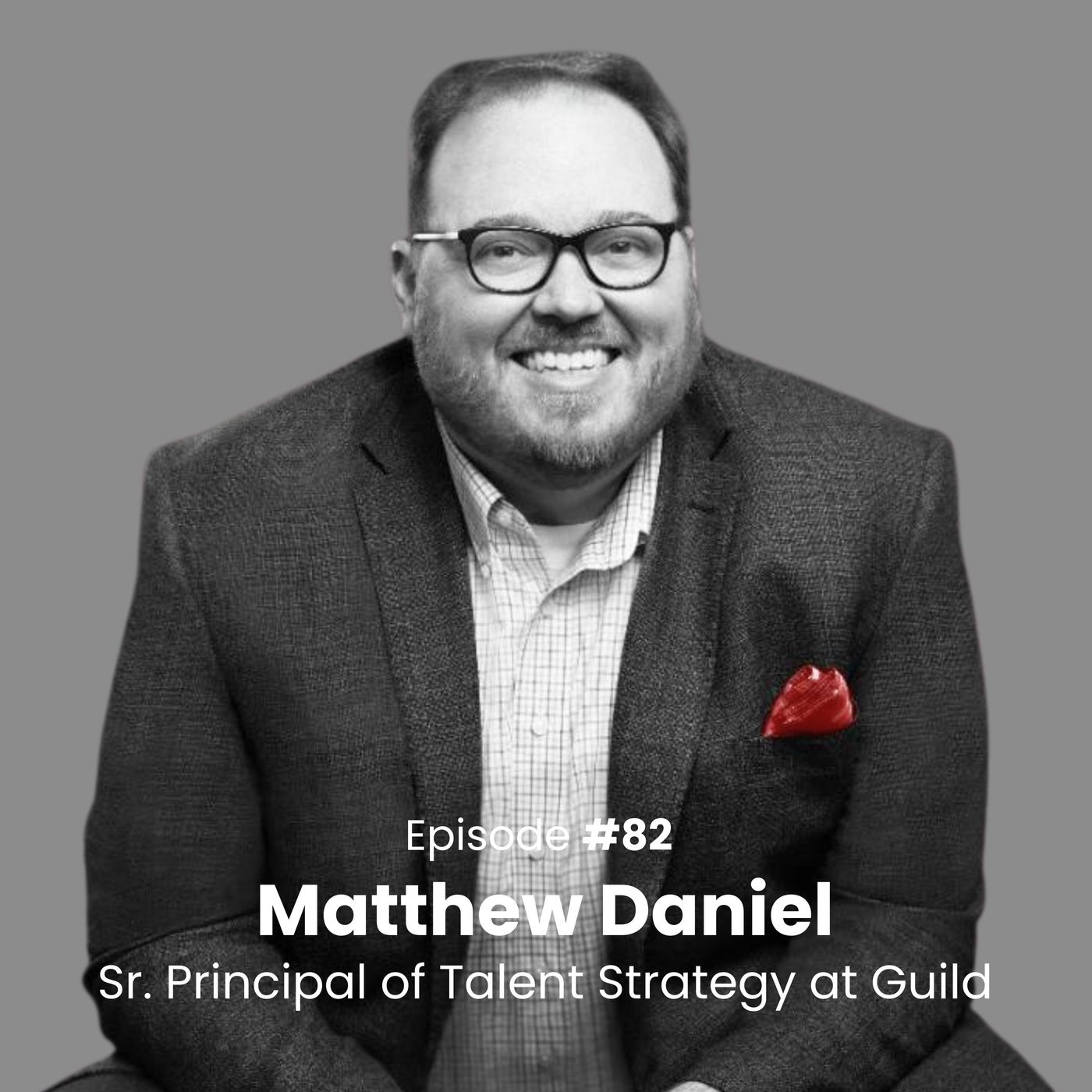
Debunking the Proposed Half-Life of a Skill: Guild Education’s Matthew Daniel
Matthew Daniel—the Senior Principal for Talent Strategy and Mobility at Guild Education—believes that, in a workplace context, skills are the things we know, can do, and the ways of thinking that help us deliver on business strategy. They are rich, deep, complex, and meaningful.Matthew believes that the “Half-life” statistic that’s been perpetuated about workplace skills is garbage. In this conversation, he details exactly why the half-life of a skill being 2 ½ to 5 years is faulty logic and how we should view skills differently. You will want to hear this episode if you are interested in...How to join the RedThread Research community [3:16]Learn more about Matthew Daniel [3:52] The half-life of a workplace skill [6:57] The history of the false statistic [13:20] How this statistic has influenced decisions [20:29] The importance of critical thinking [24:18] The lightning round [31:15] How Matthew talks about skills [34:23] Durable versus perishable skills [38:27]Skills as an equalizer in organizations [40:55] The big takeaway from Matthew’s research [43:28] Resources & People MentionedJoin the RedThread Research community!Matthew’s article: Let’s not obsess about disappearing skills; we need to plan for the ones that’ll stayOn the Obsolescence and Retraining of Engineering PersonnelConnect with Matthew DanielConnect on LinkedInGuild EducationConnect With Red Thread ResearchWebsite: Red Thread ResearchOn LinkedInOn FacebookOn TwitterSubscribe to WORKPLACE STORIES
45:1931/07/2024
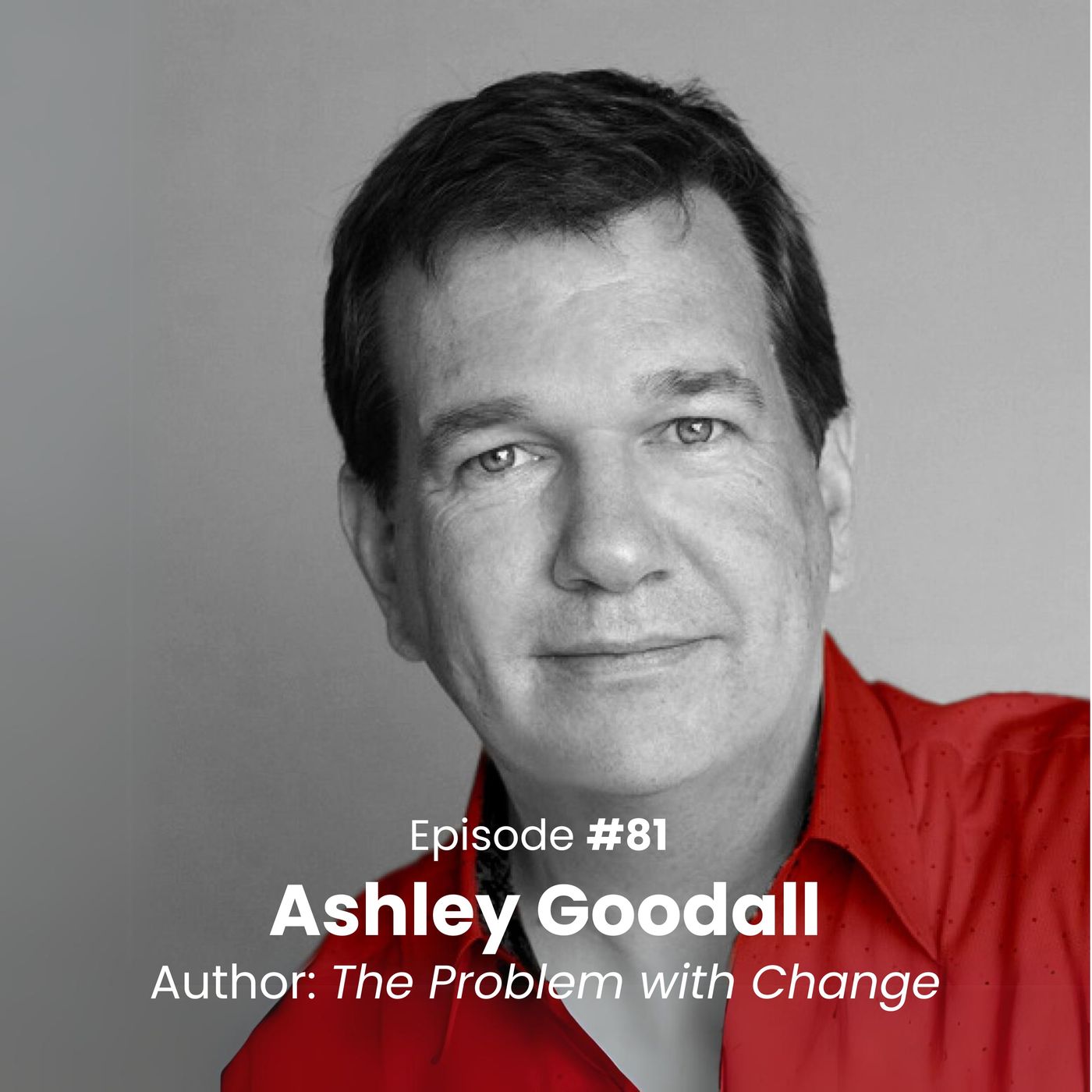
The Problem with Change: Author Ashley Goodall
Ashley Goodall has spent 20 years in various roles in HR, covering everything from performance management to leadership. He spent six years at Cisco as the SVP of HR. He left Cisco to write his book, “The Problem with Change,” which was just released. In it, he addresses the problems that accompany change. To write his book, Ashley interviewed people around the world, asking them to tell their stories of organizational change. Many people told miserable stories, stories of unending change propelled by mergers, new leadership, new strategies, and much more—much of it unnecessary. What was the result?People were struggling to do their jobs because of the constant change. Yet organizations are rewarding leaders to do things that make it hard for their employees to do their work! That’s a problem, right? So, what should we do instead?We have to understand the conditions of human performance to understand how we can “do” change better. Ashley begins to dissect that complicated yet fascinating topic in this episode of Workplace Stories.You will want to hear this episode if you are interested in...Join the RedThread Community [1:34]Why you should listen to Ashley Goodall [4:49] What is the problem with change? [7:09]Why Ashley wrote another book about change [10:34]The problems that accompany change [12:45] Looking at meaning and purpose differently [18:53] The story of Alexander the Great [23:38] The connection between meaning and ritual [25:29] We need to stop treating humans like “SKUmans” [29:10]The lightning round [33:08]Getting good at stability management [36:38] What we can learn from “the pistols” [39:59]How to create belonging on your team [44:21]Focusing on your teams to create stability [45:43] Learning how to radicalize HR [48:53] Ashley’s biggest takeaway from writing a book [53:11] The problems that accompany change Ashley addresses five core problem areas that accompany change: UncertaintyLack of control Lack of belonging DisplacementLoss of meaningThe feeling of belonging is intuitive. Humans form social groups. Those groups are massively important to psychological health, sense of identity, and cognitive processes. The way we think is socially mediated. A team gives you a sense of belonging. It’s a source of massive stability. Teammates complement each other so together they can meet a goal that couldn’t be achieved alone. When reorganization happens, all of the social groups at work are upended. In his book, Ashley also dove into the science of “place attachment.” People get attached to places. Place is a thing strongly tied to work. But there’s also a connection between ritual and place.Our habits are a mechanism by which we grow attached to a place. Habits and rituals tied to place have people saying “It’s where I do this” or “It’s where we do this.” When offices are changed or people are moved, you disrupt the rituals attached to that place.Those places are a source of stability. And for people to do their best work, they need stability. All of these facets of a human—certainty, control, social groups, sense of place, ritual—are the foundation of showing up at work and being useful. Everyone wants to be useful. How we design the workplace hinges on these things.Ashley is clear: “Sooner or later you have to ask people what they want and listen to what they tell you.”How Ashley looks at meaning differentlyAshley points out that the world around us must make sense. You can’t be uplifted by the mission of an organization if you can’t figure out what the mission is. Science tells us that the coherence of our world is so important that when it’s taken away in one place, we find it in another.There are two ingredients to meaning:Things have to make sense (which is shredded when things are changed)You need to find your own purpose. Someone can’t tell you what your purpose is We encounter the world and question, “Do I understand what’s going on here? Is this something that speaks to me?” If it does and someone asks if your work has meaning, you’ll say “yes.” Unfortunately, people think everyone around them has to have the same meaning. It doesn’t work like that. As much as they dislike it, employers aren’t massively important to someone’s purpose.We need to stop treating humans like “SKUmans”What characteristics of humans do we capture in our technology at work? How does that inform how we think about people at work? We track the “cogs in a machine” stuff. We record names, date of birth, someone’s role, their certifications and experience, etc. but we don’t record what amuses someone, what makes them smile, and the weird things they love to do. Maybe they’re always late for meetings, love to bake, or love creating spreadsheets.If you think humans are interchangeable and emotionless beings, how would you describe them? As a “SKU” number. SKUs are stock-keeping units. They track what something costs, where it is in the store, what the margin is, etc. We’ve been doing the same to humans. And that’s massively inhuman. We can’t capture human work this way. How might we capture a human at work?Ashley argues for getting better at understanding what people are like at work. It’s about asking questions like, “How are you offering your best to other humans? Why did you show up today?”Now that we’ve covered the problems with change, how do we address them? Ashley shares how stability management just might be the key (and how to navigate it) in this episode.Resources & People MentionedJoin the RedThread Community!Connect with Ashley GoodallThe Problem with Change: And the Essential Nature of Human PerformanceConnect on LinkedInConnect With Red Thread ResearchWebsite: Red Thread ResearchOn LinkedInOn FacebookOn TwitterSubscribe to WORKPLACE STORIES
55:3917/07/2024
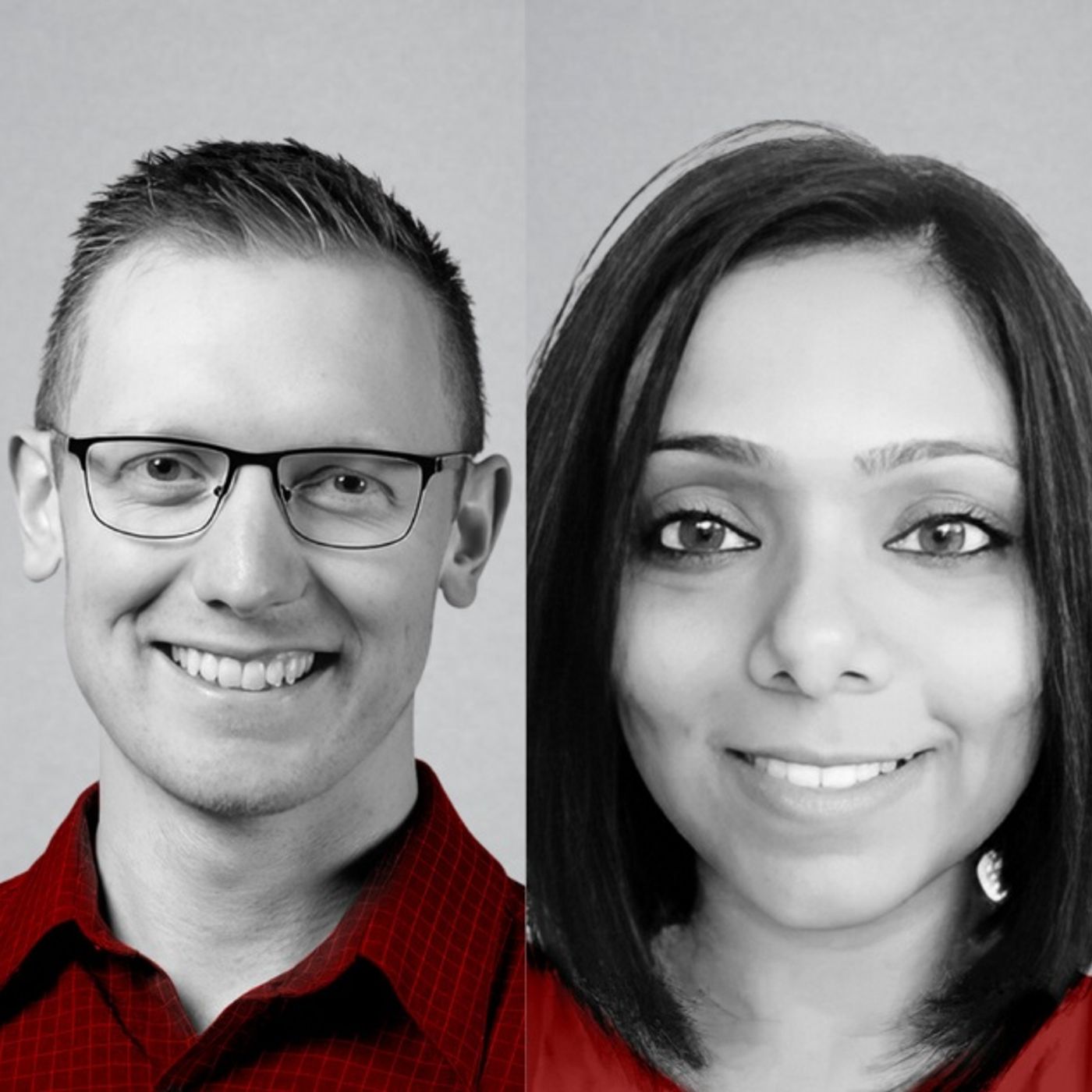
Using a Skills Framework to Empower Employees: Microsoft’s Shweta Srivastava and John Mighell
The mission of Microsoft is to empower every person in every organization to achieve more. An enterprise-wide skills focus is one way they’re fulfilling their mission.It’s about moving beyond job titles and fixed roles to give freedom and flexibility to apply skills and expertise where they matter the most. And it’s all in service of creating an environment where growing one’s career is the top reason to join and stay at Microsoft.They’re using human verification to give the individual control over the data that’s included, who it’s shared with, and how it’s shared.Shweta Srivastava and John Mighell share how Microsoft is implementing skills on a large scale in this fascinating conversation.
52:5529/05/2024
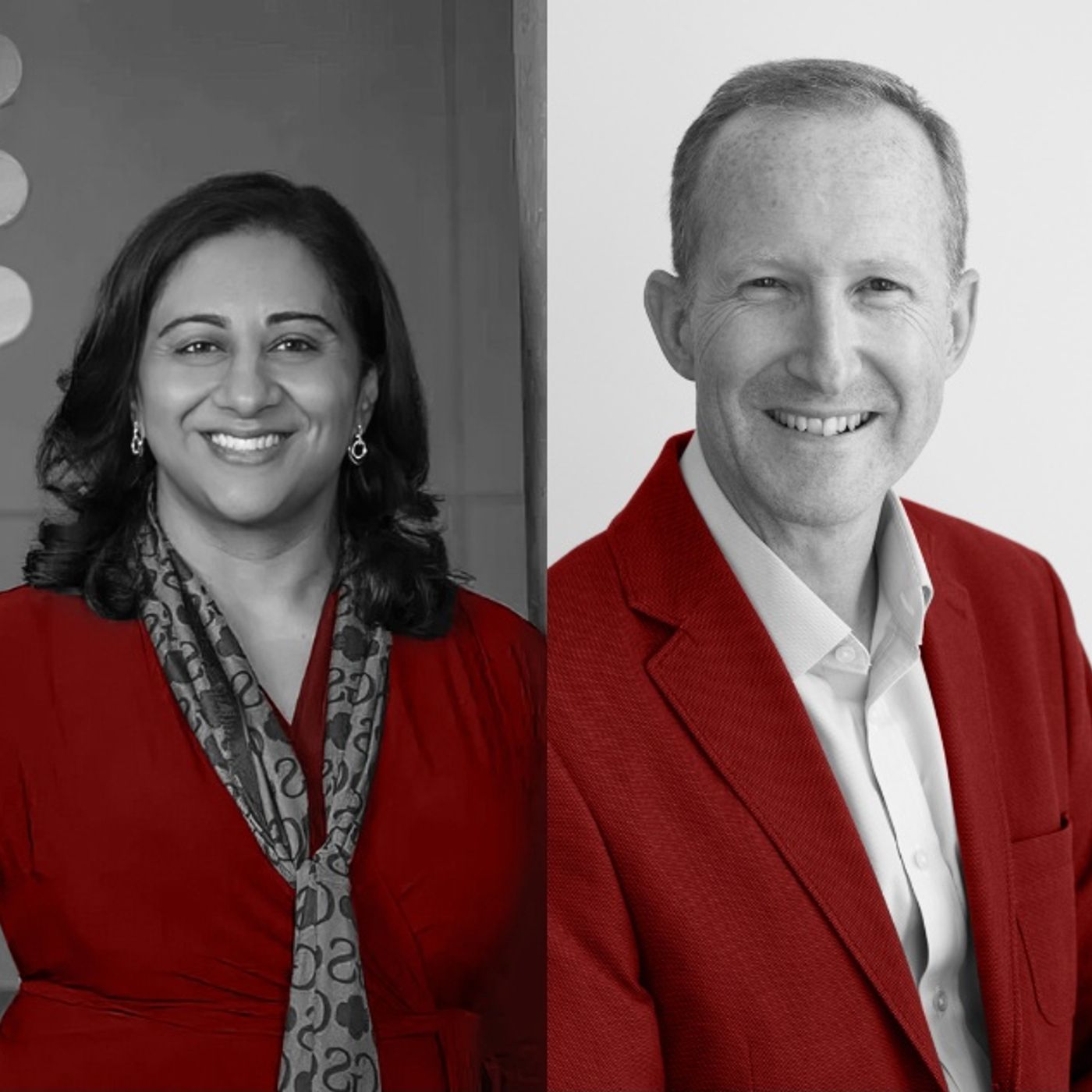
Why Skills are like Oxygen: Ericsson’s Vidya Krishnan + Peter Sheppard
“Skills are like oxygen, invisible but necessary.” This mindset shift is the brainchild of Vidya Krishnan, the Chief Learning Officer, and Peter Sheppard, the Head of the Global L&D Ecosystem at Ericsson.Much of their job is identifying the oxygen and making it visible so they can do something with it. To do this, they’re taking a top-down and bottom-up approach. They’ve worked with senior leadership to define seven key skills they think everyone in the organization needs. They also work with the job leaders who own the skills to make sure their skills taxonomy is continuously updated.Vidya and Peter are passionate about what they do. They’re working tirelessly to systemize learning to take care of and serve the individual. Because, ultimately, systems-first means people-first.
01:05:5508/05/2024
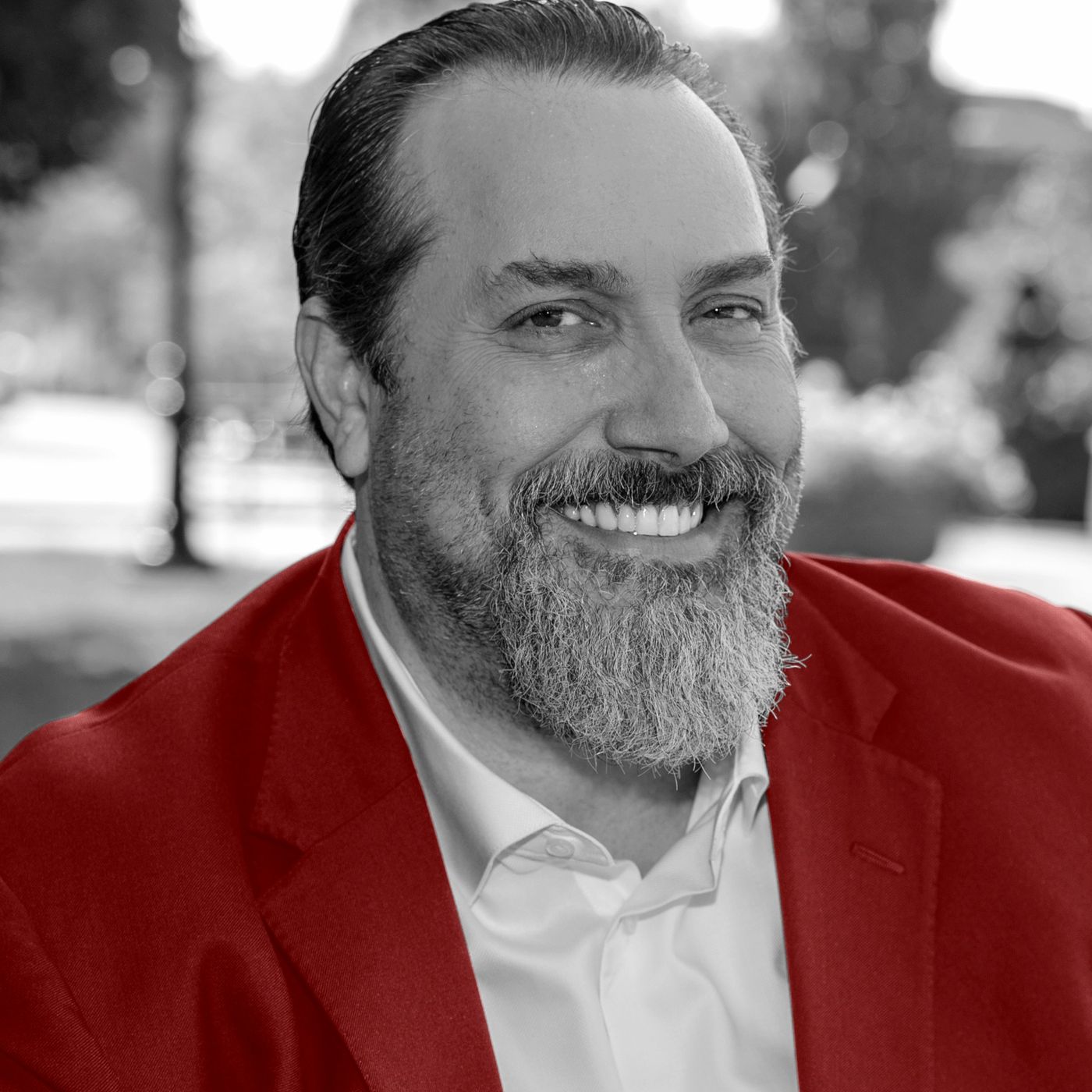
Skills Management: What is the Secret Sauce? GP Strategies’ Matt Donovan
How do we define work and the skills needed to do the work? The way we view and assess skills is often through assessing and appraising someone’s output. But the problem is that most organizations aren’t capturing the right data and using it to gain insight.According to Matt Donovan—the Chief Learning and Innovation Officer at GP Strategies—Job descriptions and skills in general describe the baseline. They are not what makes someone great at what they do. So how do we define the work and the skills needed to do the work? How can we capture a high-performer’s secret sauce? What are they doing that’s making it a successful experience versus what’s written in the job description?We dive into a fascinating conversation about where we are now, how AI is going to both help and disrupt organizations, and what the future of skills assessment could look like.
56:3703/04/2024

Generating Value from People Data: GSK’s Angela Le Mathon
GSK is a global biopharma company with a purpose to unite science, technology, and talent to get ahead of disease together. They aim to positively impact the health of 2.5 billion people by the end of 2030. In her role as the VP of People Data & Analytics, Angela is responsible for generating value from their people data. She has the opportunity to shape thinking and inform strategy. Her job is to translate skills so that everyone can do what they need to with the data.She shares more about GSK’s scientific approach, how they’re using AI to gather information, and how skills verification ties in. Don’t miss this fascinating conversation.
45:0220/03/2024

Skills: Yes, the Juice Is Worth the Squeeze: EPAM’s Sandra Loughlin
Sandra Loughlin is the Chief Learning Officer and the Global Head of Talent Enablement and Transformation at EPAM, a software engineering and consulting firm. Unlike many of the organizations we’ve spoken about, EPAM has been on a skills journey since its inception over 30 years ago. Building a skills-based organization has been the backbone of everything they do. In this conversation, Sandra shares why the juice is indeed “Worth the squeeze.”
50:4406/03/2024

When Digital Transformation Drives Skills Transformation: Booking.com’s Oliver Drury
When Oliver (Ollie) Drury joined Booking.com, they dove into digital transformation by simplifying their tech stack—and reducing variables—using a middleware to stitch everything together. That enabled them to have a simpler set of variables from which to create their skills ecosystem. Their driving goal was to solve skills for the entire organization. In this conversation, Ollie shares how they’re working to accomplish a skills-based transformation by first focusing on digital transformation. You will want to hear this episode if you are interested in...Join the RedThread Research Community [5:01]Learn more about Ollie Drury and his work [5:59] Why they’re creating a skills-based organization [7:09]Why they focused on digital transformation first [8:00]How they’re building for reversibility [18:04]Major obstacles they’ve overcome [24:08] How they’re measuring effectiveness [26:08] The lightning round [27:58] Who leads skills at Booking.com? [34:29]Why employees own the skills data [38:05] How culture impacts the journey to skills [42:38] Steering away from the reward use case [47:53]The biggest thing Ollie’s learned [49:35] Why Ollie is passionate about this work [50:22] Resources & People MentionedJoin the RedThread Research CommunityMuleSoftTech OffWorkdayGloatNeilsoftCrunchrBOOK: Work without Jobs BOOK: InspiredBOOK: Hidden PotentialBOOK: The Technology FallacyConnect with Oliver DruryConnect on LinkedInConnect With Red Thread ResearchWebsite: Red Thread ResearchOn LinkedInOn FacebookOn TwitterSubscribe to WORKPLACE STORIES
51:4021/02/2024

Company Culture is the Foundation for Skills Readiness: Executive Networks’ Gina Jeneroux
According to Gina Jeneroux, company culture sets the foundation for skills readiness. If a company culture isn’t supportive of innovation and creativity, is it ready to support an initiative to focus on skills? Skills should be infused into everything you do in your organization and supported from the top down. Gina has spent almost 40 years in the financial services and learning industries. She spent the last few years running BMO’s corporate university and serving as Chief Learning Officer. In this conversation, she shares why a focus on skills is necessary, why company culture plays an important role, and how to get buy-in from company leadership.You will want to hear this episode if you are interested in...Connect With Red Thread ResearchWebsite: Red Thread ResearchOn LinkedInOn FacebookOn TwitterSubscribe to WORKPLACE STORIES
53:4607/02/2024
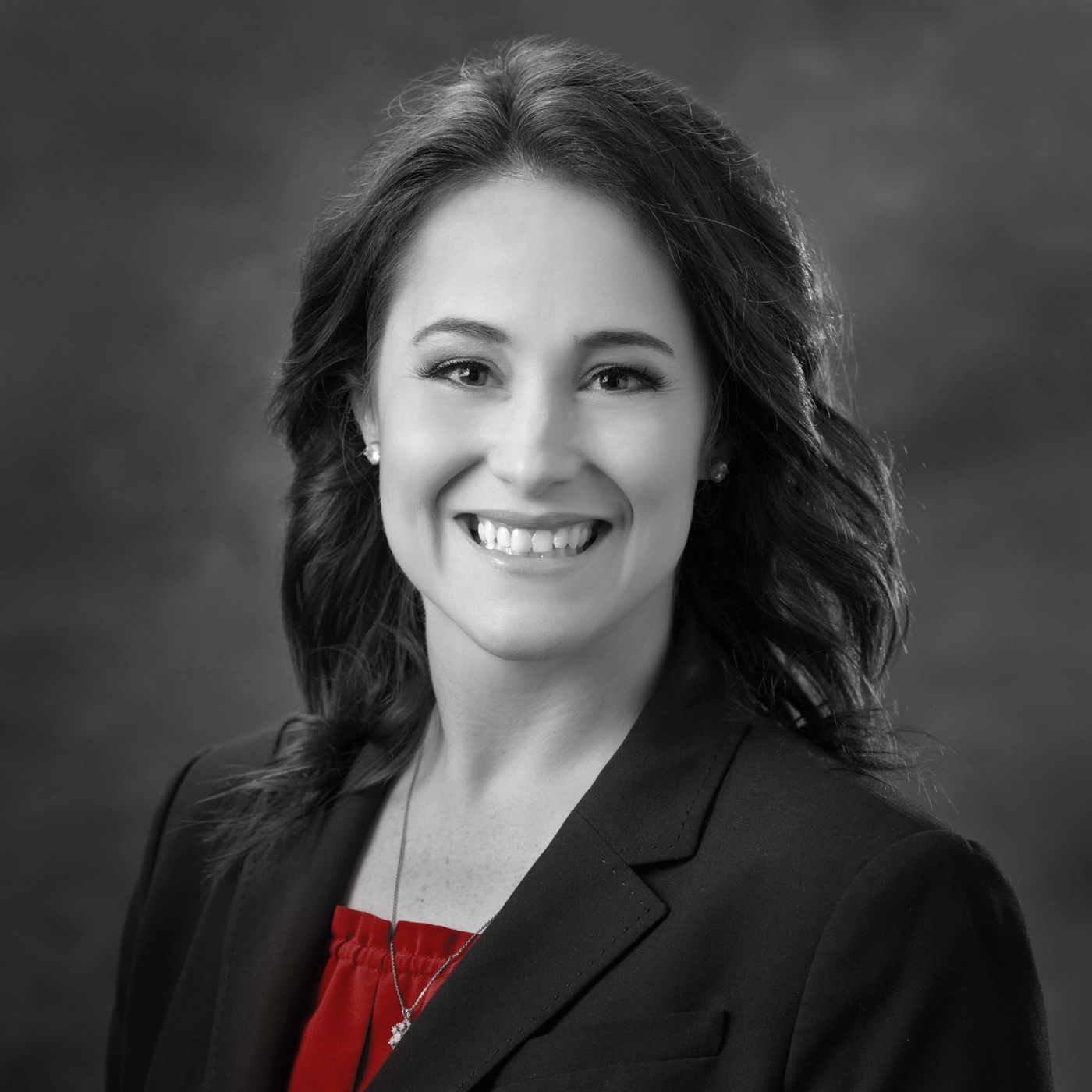
A Skills Approach for the Present and Future: IEEE’s Jennifer Rogers
Jennifer Rogers is the Executive Officer in the Learning Technology Standards Committee at the Institute of Electrical and Electronics Engineers (IEEE), which has 427,000+ members in over 190 countries. The IEEE is the world’s largest trade organization and the professional home for engineering and technology communities worldwide. Jennifer is an unrelenting advocate for the potential that exists in others, which is why she’s a perfect fit at IEEE. IEEE is working together to figure out skills across an industry. They’re also focused on skills development and education at all levels through college and a professional career. In this conversation, Jennifer shares what a skills-based organization looks like, how they organize and validate skills, and how their approach focuses on both the present and future.
56:0606/12/2023

Leveraging Generative AI to Efficiently Utilize Skills Data: McKinsey & Company’s Yelena Mammadova, Ed.D
According to Yelena Mammadova, Ed.D—the Associate Director of Learning, Skills Transformation Initiative at McKinsey—McKinsey seeks to bring impact to clients and create an organization where they attract, excite, and retain exceptional people. The primary goal of her department is to accelerate talent development. Yelena strives to connect human development and technology in her role. She is one our first guests who’s talked about generative AI and how it’s embedded into their skills effort. They’re using AI to connect and map skills information. Secondly, they’re integrating skills with their people analytics teams. They’re starting small and experimenting. Most organizations build skills models around the job architecture currently in place. McKinsey is taking a different approach. They’re developing assessments for skills so they know how to organize the people around the work they have.Learn more about their unique approach and their utilization of generative AI to father and efficiently utilize skills data in this conversation.
48:5922/11/2023
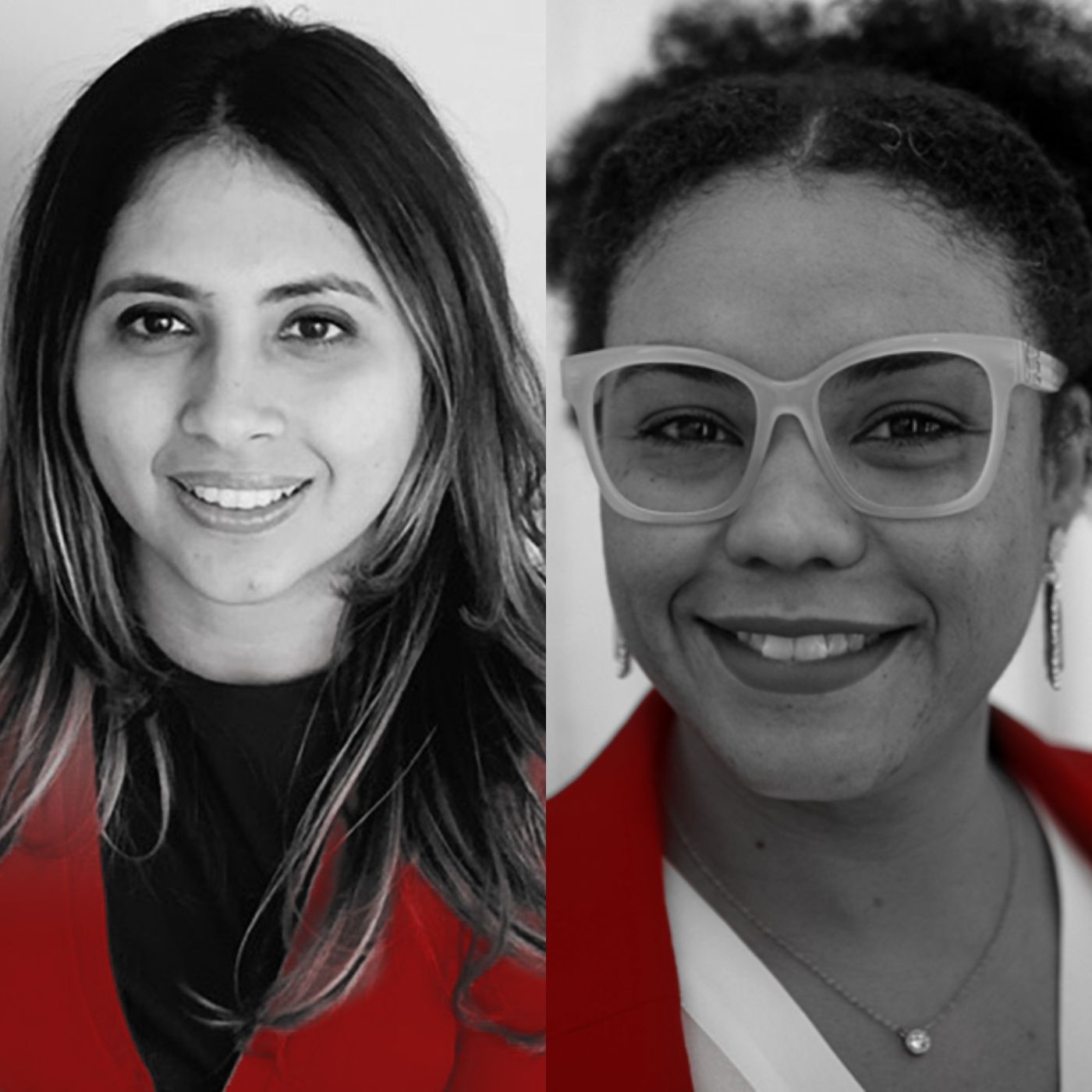
Narrowing Scope & Purpose to Ease the Transition to a Skills-Based Organization: HPE's Kaye Slay and Vandana Bhagtani
Transitioning a large company like Hewlett Packard Enterprise (HPE) to a skills-based organization could be a daunting task. That’s why focusing on scope and purpose was an important place to start for Vandana Bhagtani and Kaye Slay. In this conversation, Vandana—The Director of Technical Talent Management—and Kaye—The User Experience and Adoption Lead for Talent and Learning Systems—share how they’ve worked together to develop a strategy for transitioning HPE to a skills-based organization. They also share why they chose to focus on a particular group and narrowed their scope further to talent acquisition and people development (all the while leveraging technology and AI). They’re at the start of their journey and will evolve and develop as they transition to a skills-based organization. Subscribe to WORKPLACE STORIES
49:5808/11/2023

Partnerships Focused on Learning Equity: Ingka Group’s Shannon Custard
Shannon Custard—the Global Competence Development Manager at Ingka Group—is responsible for leading their global learning organization consisting of over 177,000 workers across 30+ countries globally. As they began the transition from a competence-based to a skills-based organization, Shannon wanted to focus first and foremost on frontline populations. They believe that frontline population learning equity is important and often neglected. So they focused on solving the skills problems for the frontline employees to then extrapolate to the corporate population.Through the process, they almost completely scrapped and redesigned their onboarding process to make sure the frontline team members had the skills necessary to be successful. When you help people reach success soon, it makes an impact.In this conversation, Shannon shares more about the process of transitioning to a skills-based organization, why the Ingka Group believes it’s important, and the impact it’s making on their frontline population. Resources & People MentionedThe Future of Jobs Report 2023IKEAConnect with Shannon CustardIngka GroupConnect on LinkedInConnect With Red Thread ResearchWebsite: Red Thread ResearchOn LinkedInOn FacebookOn TwitterSubscribe to WORKPLACE STORIES
48:3625/10/2023

Creating a Job Architecture from Scratch: Megan Bickle
Megan Bickle is the Director of Culture, Employee Engagement and Employee Listening at Western Digital. In Megan’s experience, roles can be viewed as a collection of skills. Viewing roles this way allows organizations to be more responsive to the evolving needs of the business in terms of the skills needed for development and hiring. Megan believes that job architecture is essential to becoming a skills-based organization. Skills were a part of their overall integrated talent management strategy, infused throughout the organization. Capability models and job structures were built in tandem. In this conversation, Megan shares her experience building a skills-based organization as the Global Talent Management and Organizational Development Leader at GE Digital. You will want to hear this episode if you are interested in...Learning more about Megan Bickle [4:45]What a skills-based organization is [6:03]Why job architecture is important in skills-based organizations [9:04]How a capabilities-based architecture works in practice [18:06]Accounting for the evolution of the skills themselves [22:13]How learning/development dovetails into talent practices [24:34]Managing the ownership of the architecture [28:19]The lightning round [33:07]How the skills effort evolves over time/lessons learned [36:48]How people analytics were involved in the process [39:30]The strategy for assessing employee skills [42:37]Why Megan does the work she does [48:32]Resources & People MentionedBOOK - Good to Great by Jim CollinsConnect with Megan BickleConnect on LinkedInConnect With Red Thread ResearchWebsite: Red Thread ResearchOn LinkedInOn FacebookOn TwitterSubscribe to WORKPLACE STORIES
49:3511/10/2023
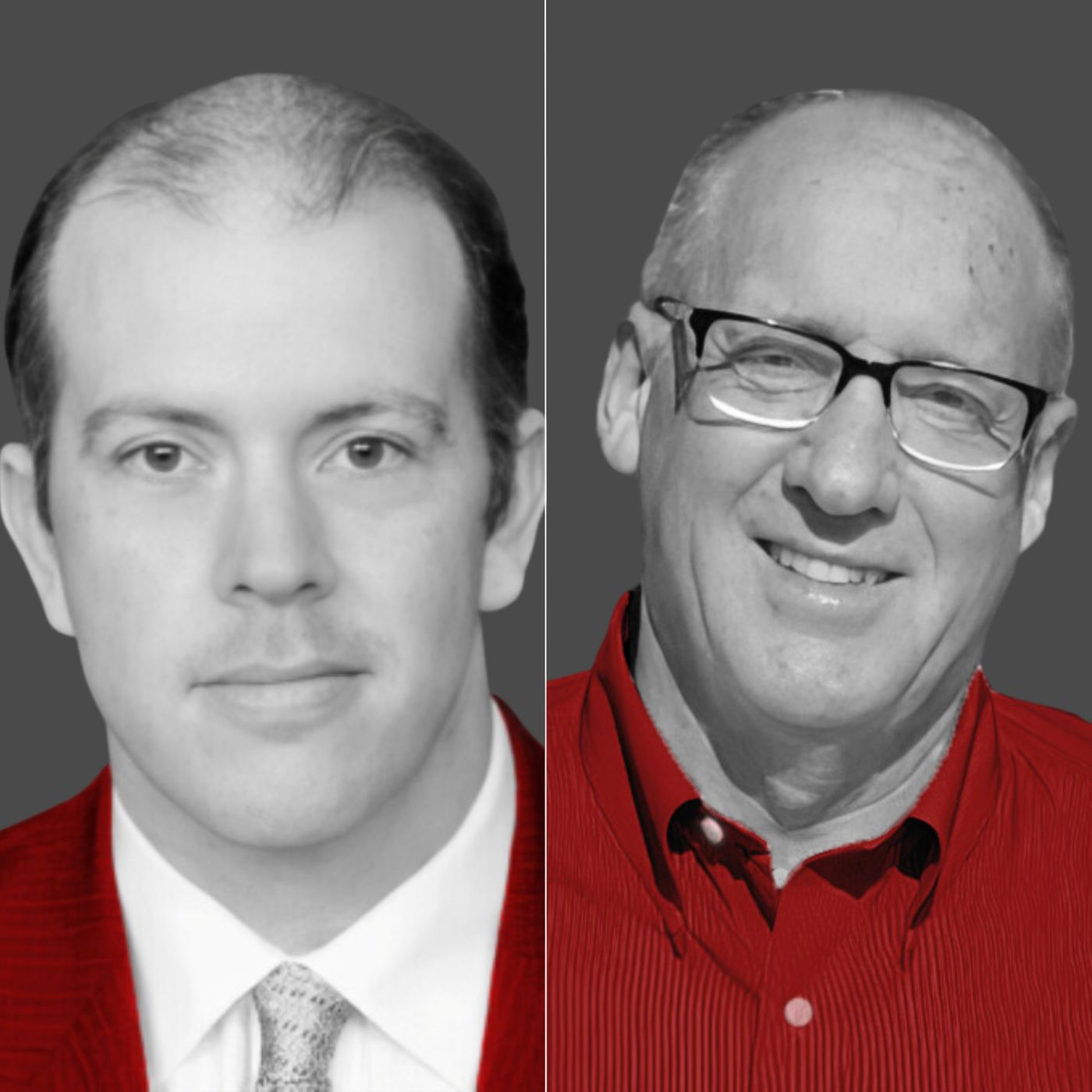
Developing Skills to Reach Business Outcomes: Learning Forum’s Brian Hackett and Richardson Consulting’s Brian Richardson
The importance of creating skills-based organizations is no longer a theoretical discussion: it’s now a practical reality. To ensure that businesses reach their desired outcomes, it is necessary to ensure that their workforce has the skills needed to get the job done.Brian Richardson and Brian Hackett are deeply entrenched in helping business leaders discuss and develop the skills initiatives needed to improve their organizations’ metrics.In this in-the-weeds discussion, we learn from both Brians’ breadth of experience to hear what it takes for businesses to bring skill building to the forefront.Connect with Brian Hackett and Brian RichardsonConnect With Red Thread ResearchWebsite: Red Thread ResearchOn LinkedInOn FacebookOn TwitterSubscribe to WORKPLACE STORIES
52:5027/09/2023
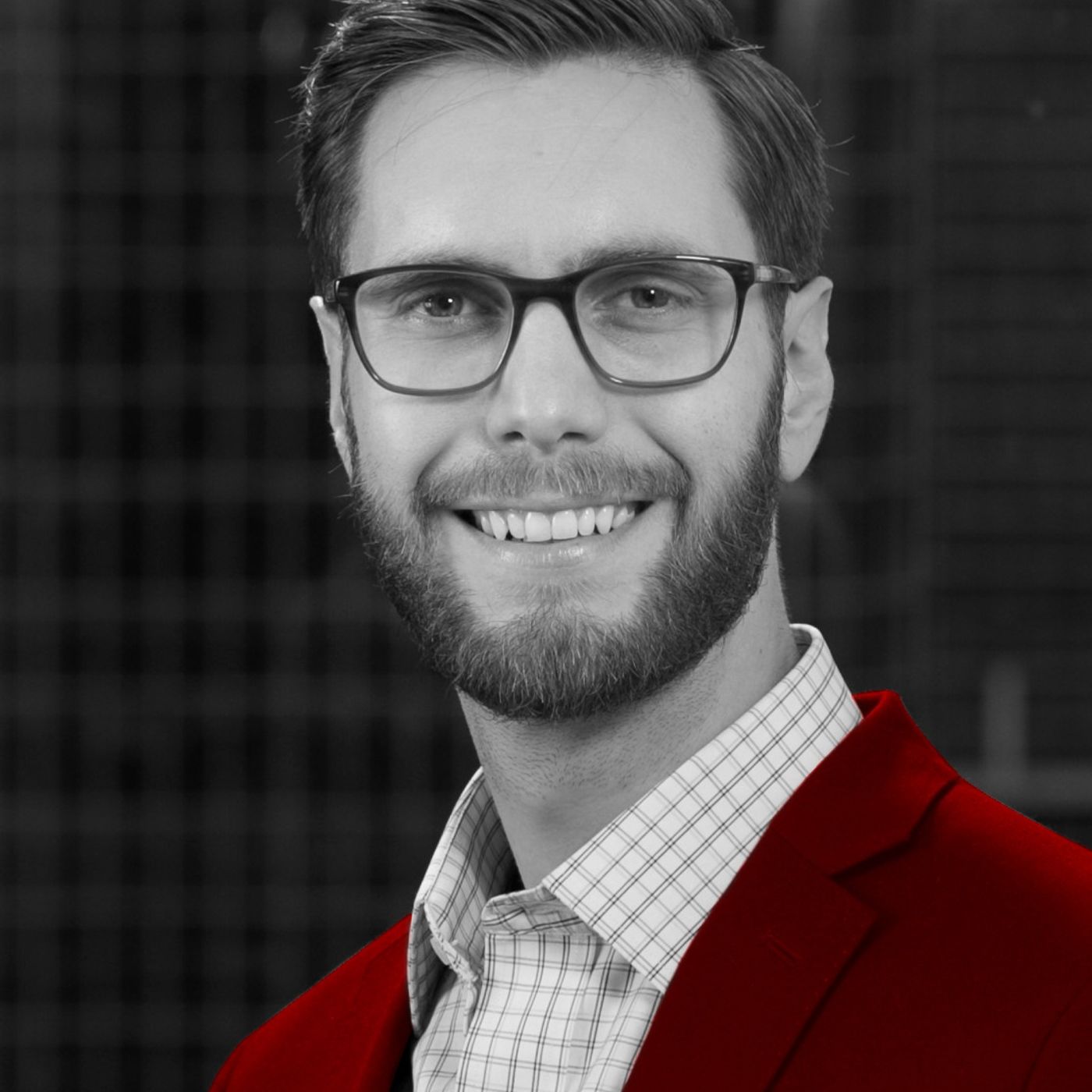
Transitioning from a Training Culture to a Learning Culture: Sobeys’ Peter Tulumello
Peter Tulumello is changing the culture at one of Canada’s largest grocery retailers. As a grocery chain, Sobeys has a large segment of frontline workers and with it, their own unique pain points.To understand the problems that the frontline faces, Peter recognized that he needed to get into the stores to understand frontline workers’ day-to-day roles. Listen to this interview to hear how Peter identified major problems and came up with valuable solutions. Connect with Peter TulumelloPeter on LinkedInConnect With Red Thread ResearchWebsite: Red Thread ResearchOn LinkedInOn FacebookOn TwitterSubscribe to WORKPLACE STORIES
47:2923/08/2023
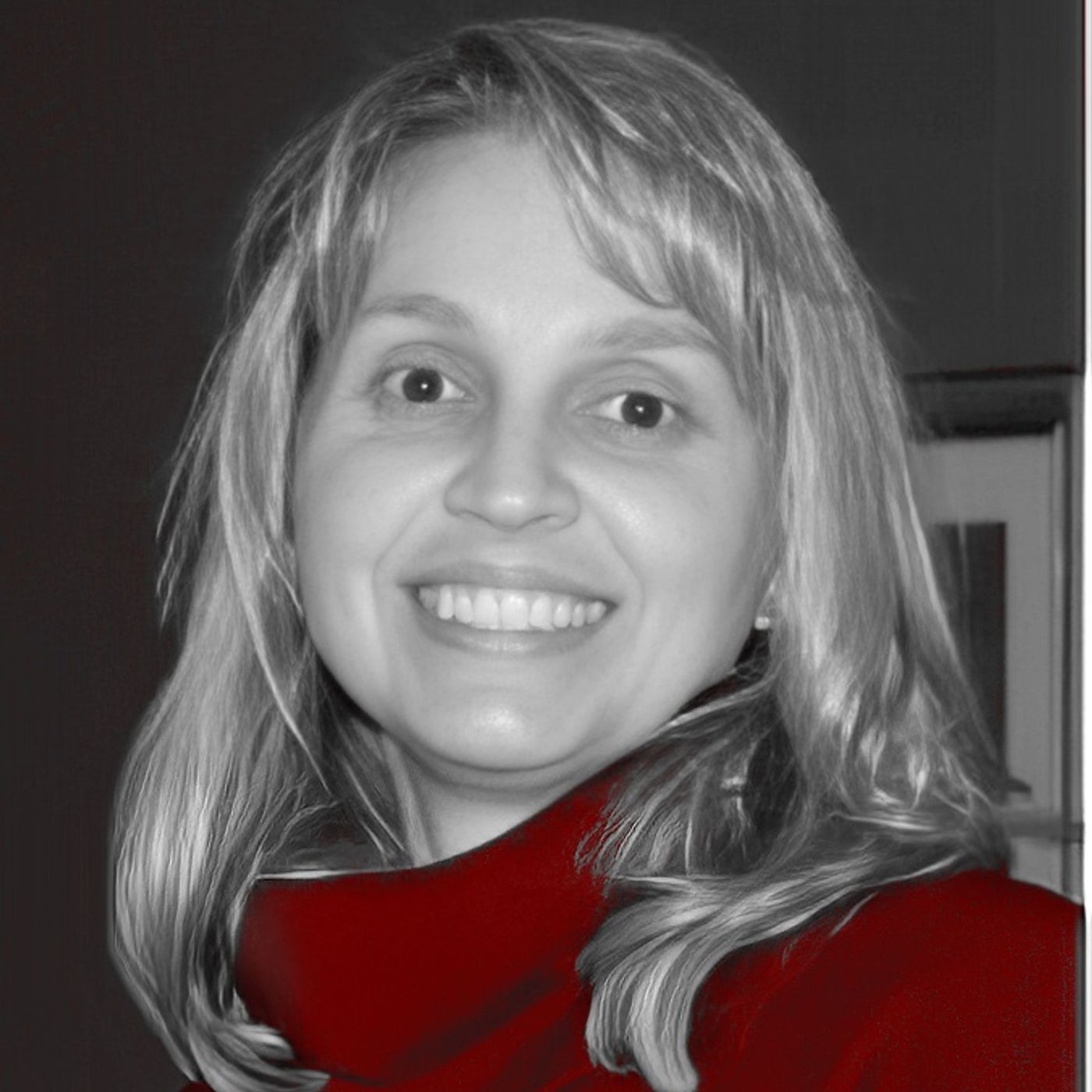
Developing the Frontline: General Mills’ Valerie Digman
What happens when a mechanical engineer tackles an L&D problem? A completely redesigned learning environment.On this episode of Workplace Stories, we interview General Mills’ Valerie Digman. Valerie describes how she helped solve a frontline training problem and improved efficiency by 5%.If you’re interested in improving efficiency and rethinking traditional training methods, you won’t want to miss this interview. Press play to learn from Valerie’s experience at General Mills.You will want to hear this episode if you are interested in...The work she does [4:32]The difference between [6:15]Problem-solving [9:48]Process of problem-solving [15:28]Lightning round [21:06]Strategy to gain 5% in efficiency [23:03]What they learned [29:38]Their biggest challenges [30:48]How to apply more broadly [32:52]Working with union vs nonunion [36:46]What’s next [39:25]Resources for senior leaders [41;50]Valerie’s biggest learning experience [43:48]Why Valerie does what she does [45:10]Resources & People MentionedAxonifyConnect with Valerie DigmanValerie Digman on LinkedInConnect With Red Thread ResearchWebsite: Red Thread ResearchOn LinkedInOn FacebookOn TwitterSubscribe to WORKPLACE STORIES
45:5909/08/2023
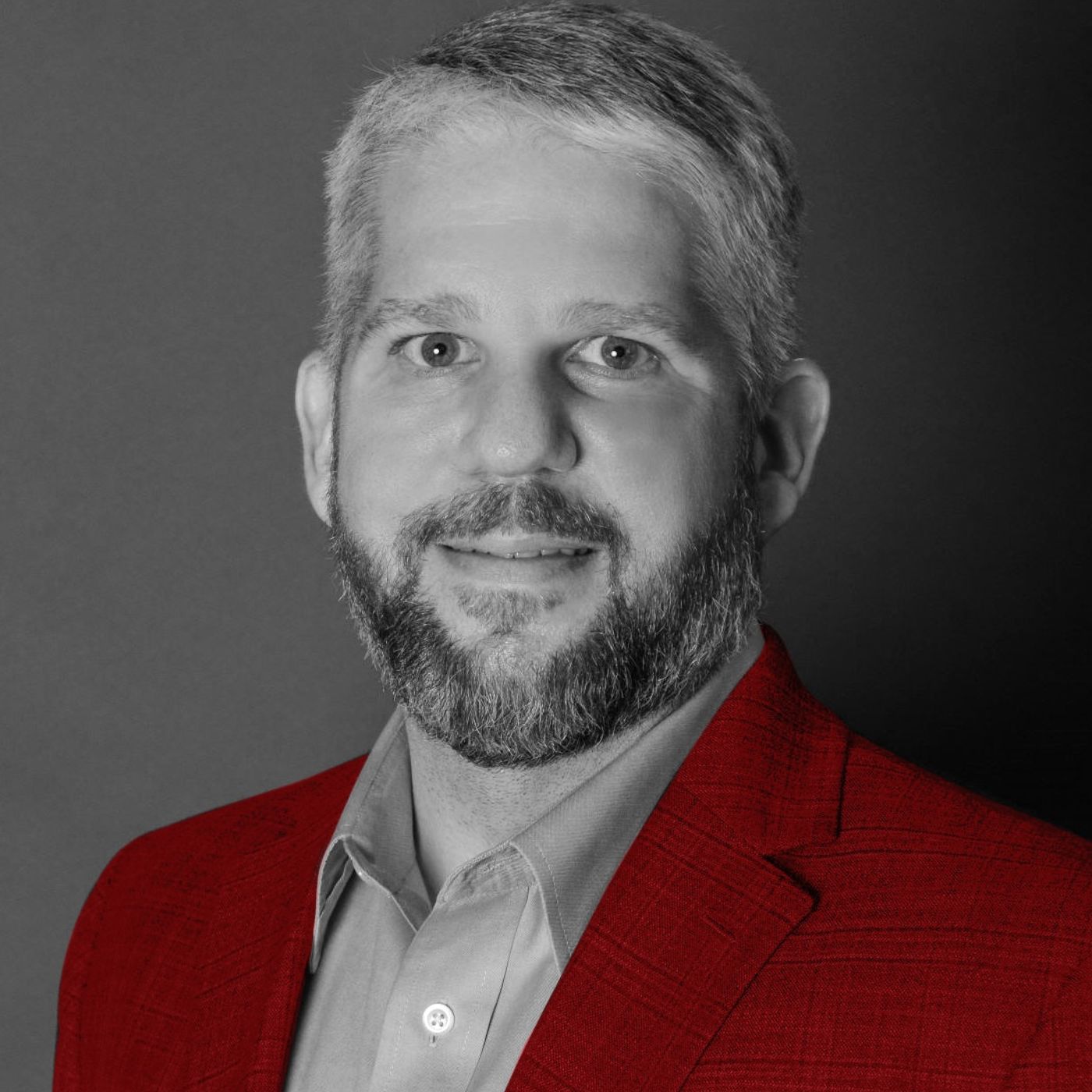
Listening to Frontliners Through Business and Cultural Change: Acuity Brands John Brothers
We’re all humans, so the needs of workers are similar across the board. John Brothers has learned this from his time as VP of Talent at Acuity.On today’s episode of Workplace Stories, John recounts his experience working through Acuity’s cultural and business mindset shift and how that has affected the frontline workforce and beyond.Connect with John BrothersJohn on LinkedInConnect With Red Thread ResearchWebsite: Red Thread ResearchOn LinkedInOn FacebookOn TwitterSubscribe to WORKPLACE STORIES
38:5726/07/2023
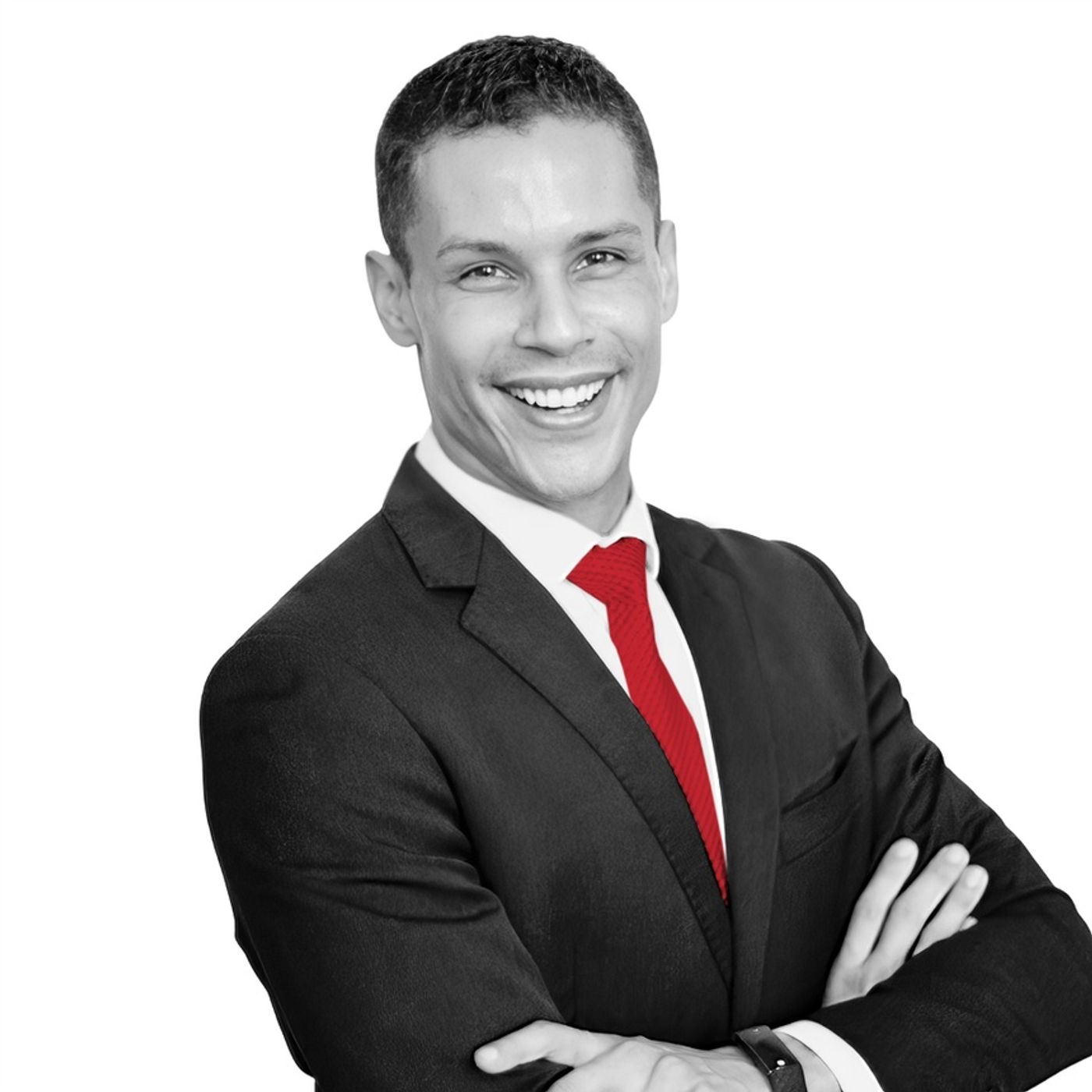
Improving the Employee Experience with Different Types of Frontline Workers: Rotana’s Andrew Wolhuter
Improving the employee experience starts with data. Rotana’s Andrew Wolhunter understands that and uses Rotana’s qualitative data to retain frontline workers in a competitive market.Andrew has an enthusiasm and infectious energy that he not only shares with his coworkers at Rotana, but he also shares this excitement with us on today’s episode. Listen in to learn how Andrew is using data to lead the change in the employee experience at Rotana.Connect with Andrew WolhunterAndrew on LinkedInConnect With Red Thread ResearchWebsite: Red Thread ResearchOn LinkedInOn FacebookOn TwitterSubscribe to WORKPLACE STORIES
53:1012/07/2023

Gaining Insightful Feedback from Frontline Workers: Cargill’s Tabatha Cronin
Frontline workers face unique challenges so organizations are making changes to empower them. On this season of Workplace Stories, we’re exploring the unique challenges and positive situations happening on the frontline. On this episode, we chat with Tabatha Cronin to learn how Cargill is supporting its massive frontline labor force. Listen in to learn how Cargill dug in to understand the motivations driving their employees. You won’t want to miss how this changed the way the company approached its solutions.Resources & People MentionedReThinking - Adam Grant’s podcastBOOK - Think Again by Adam GrantBOOK - Never Waste a Crisis by Anne HarbisonConnect with Tabatha CroninTabatha on LinkedInConnect With Red Thread ResearchWebsite: Red Thread ResearchOn LinkedInOn FacebookOn TwitterSubscribe to WORKPLACE STORIES
48:3728/06/2023
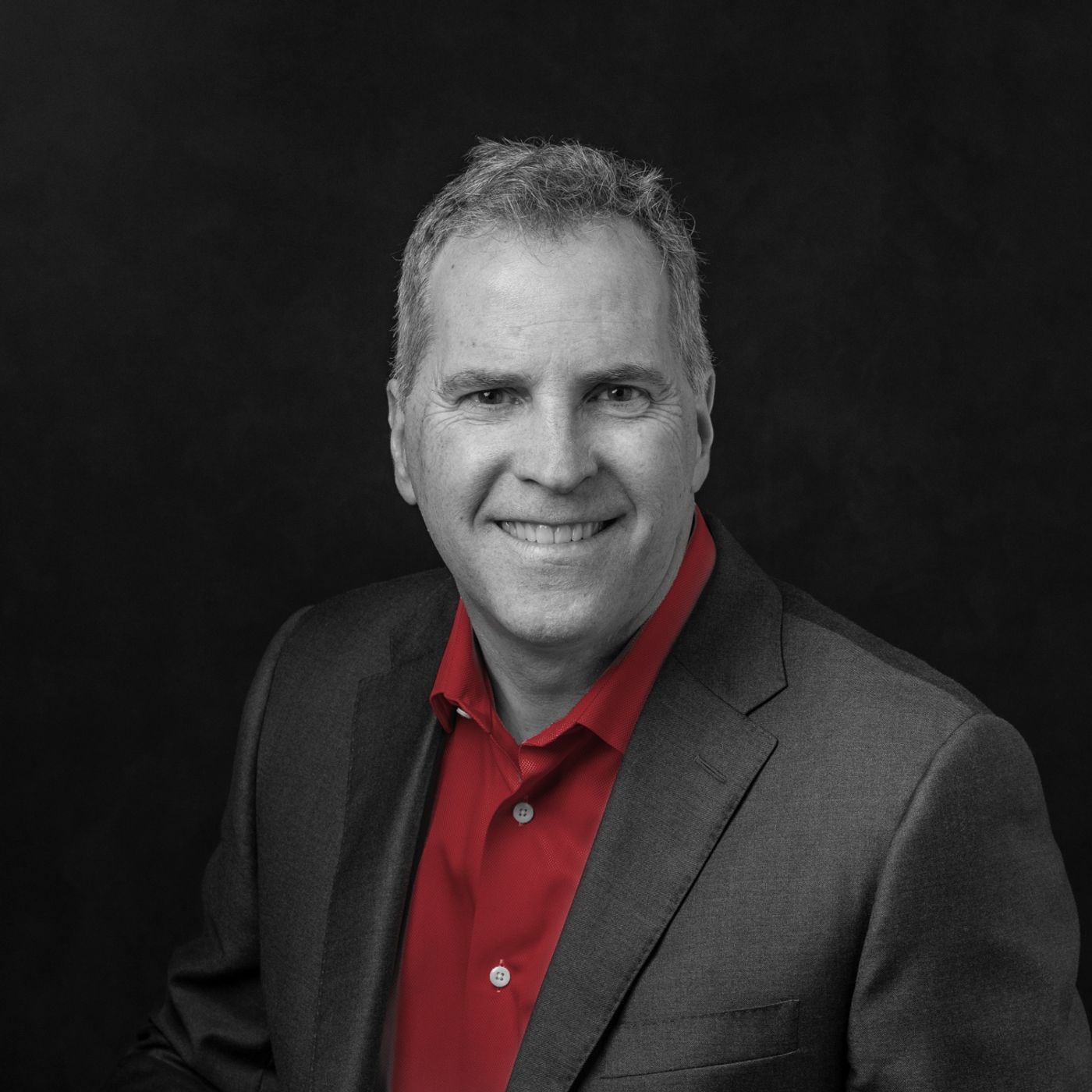
Creating Purposeful, Collaborative, Tactical Work on the Frontline: SAP’s Steve Hunt
Frontline workers can have an outsized influence on the success of an organization. They are often the only interface our customers have with a brand. At RedThread Research, we have been diving into how to support frontline workers more holistically which is why this season we are focusing on the unique challenges that frontline workers face. We’ll also explore the changes organizations are making to empower them, as well as the good things happening on the frontline and how organizations can adapt those practices more broadly.In this episode, we welcome Steve Hunt from SAP. Steve has a unique perspective based on his work as an organizational psychologist in the technology space. This discussion was a fantastic way to open the conversation and sets the bar high for the rest of the season. Don’t miss it; press play now to listen.Connect with Steve HuntSteve on LinkedInBOOK - Talent Tectonics by Steve HuntConnect With Red Thread ResearchWebsite: Red Thread ResearchOn LinkedInOn FacebookOn TwitterSubscribe to WORKPLACE STORIES
50:0414/06/2023

Creating Intentional Leadership: AAFP’s Paula Matthews
A lot has changed for managers and organizations over the last three years. So, what can be done to successfully navigate those changes so that managers can be successful and organizations can continue to thrive?The American Academy of Family Physicians (AAFP) is designing a new framework for their managers to help them better understand what they can be doing to intentionally lead their staff.This inspiring conversation with Paula Matthews from AAFP is a fantastic way to wrap up our Making Managing Manageable series.If you are just wrapping up season eight, now is a great time to subscribe to the podcast. You can get even more RedThread content by joining our membership community. Try it out for free for seven days to see what we’re all about!You will want to hear this episode if you are interested in...The rapid-fire questions [5:32]Paula’s role at AAFP [9:17]What has changed for managers over the last three years [10:10]What managers will return to [14:00]What sets good managers and not-so-good managers apart [15:40]Why managers are struggling today [18:24]AAFP’s new manager framework [20:20]How they implement their training framework [26:25]How to empower employees to take control of their tasks [27:33]The lightning round questions [34:19]The role of leadership development [35:45]Resources & People MentionedSeason 0 - Is Purpose Working?Connect with Paula MatthewsAAFPConnect With Red Thread ResearchWebsite: Red Thread ResearchOn LinkedInOn FacebookOn TwitterSubscribe to WORKPLACE STORIES
44:4511/04/2023
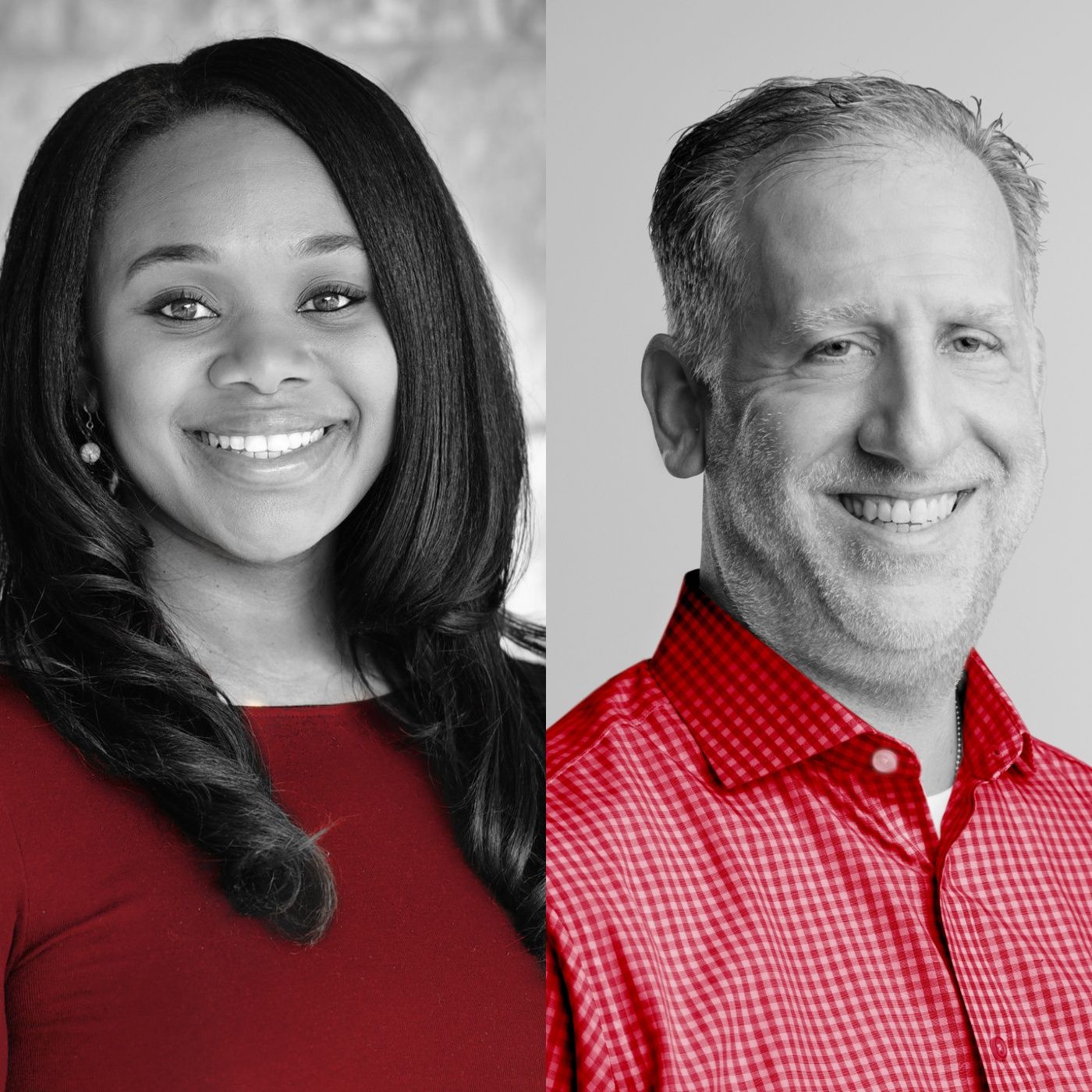
Questioning Convention in the Workplace: Moderna’s Noah Rabinowitz and Nkiruka Ogbuchiekwe
In this episode of Workplace Stories we talked to Moderna’s Noah Rabinowitz and Nkiruka Ogbuchiekwe. We explore ways that managers and other leaders can question conventionality by recognizing and thinking through false dichotomies. Listen in to hear how Moderna is building its systems by putting its company culture first and by constantly questioning traditional ways of doing things. Learn moreEnd-of-Season WebinarDon't miss our season recap, where we will summarize key themes, share critical insights and anecdotes, and identify our questions on how to make managing more manageable.Register todayResources & People MentionedBOOK - Thinking Fast and Slow by Daniel KahnemanBOOK - Night by Elie WieselBOOK - Professionalizing Leadership by Barbara KellermanCheck out season 0 - Is Purpose Working?RedThread's Purpose ResearchConnect with Noah Rabinowitz and Nkiruka OgbuchiekweNoah on LinkedInNkiruka on LinkedInModernaConnect With Red Thread ResearchWebsite: Red Thread ResearchOn LinkedInOn FacebookOn TwitterWant full access to the episode's transcript? Try our RTR membership with a 7-day trial. Listen to our top episodes, explore cutting-edge research, attend exclusive member-only events, and share with a top-notch cohort community of industry leaders and peers. Take it for a spin!
53:4028/03/2023
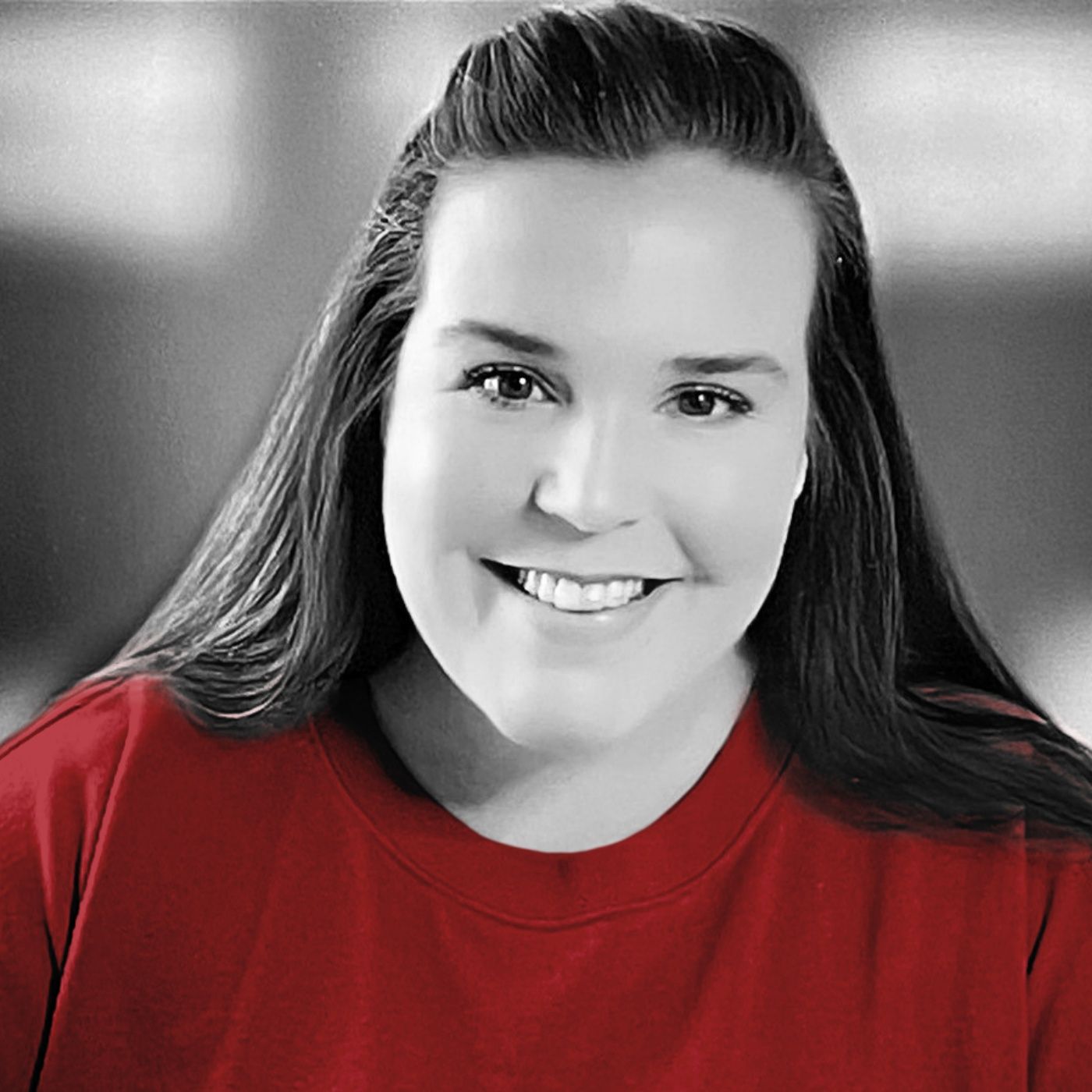
How Organizations Can Make Data-Driven Changes that Benefit Everyone: Affirm’s Kaitlyn Mathews
On this episode of Workplace Stories, Affirm’s Feedback and Development Lead, Kaitlyn Mathews, describes how her organization uses its data to drive changes within the company. Kaitlyn also touches on their delivery systems, the HR relationship with managers, using tech to strategize, and how she uses her role to help others realize their capabilities. Learn moreEnd-of-Season WebinarDon't miss our season recap, where we will summarize key themes, share critical insights and anecdotes, and identify our questions on how to make managing more manageable.Register todayResources & People MentionedBOOK - Extreme Ownership by Jocko WillinkConnect with Kaitlyn MathewsKaitlyn Mathews on LinkedInConnect With Red Thread ResearchWebsite: Red Thread ResearchOn LinkedInOn FacebookOn TwitterWant full access to the episode's transcript? Try our RTR membership with a 7-day trial. Listen to our top episodes, explore cutting-edge research, attend exclusive member-only events, and share with a top-notch cohort community of industry leaders and peers. Take it for a spin!
54:2714/03/2023
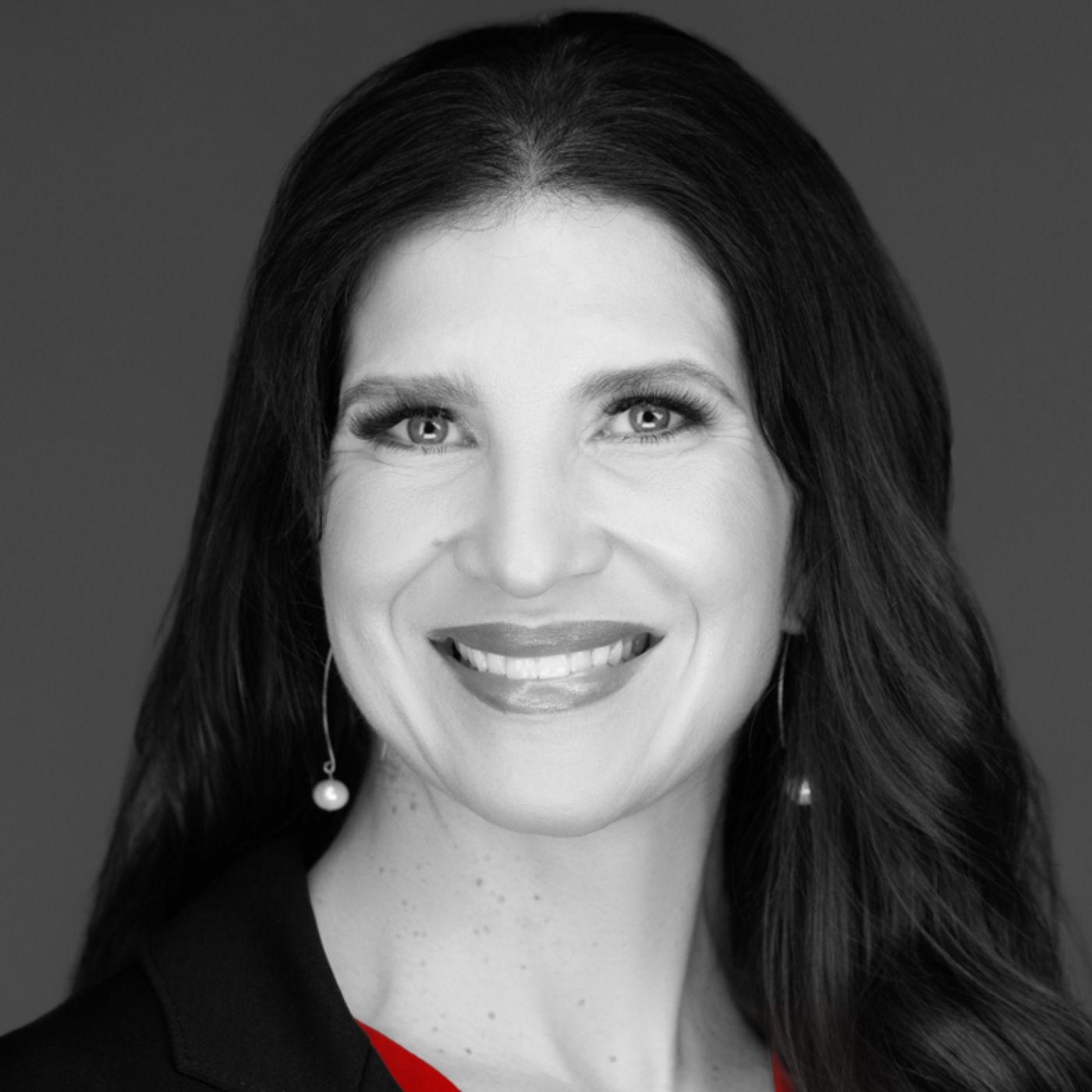
Building Connection and Community Through Leadership: WGU’s Sara Reed
In this conversation, we speak to Sara Reed, Vice President of People and Talent at Western Governors University. We discuss what struck her about what senior leadership is doing to support managers within her organization, how building connections and community actually helps to support accountability, and why it is important to analyze the reasons that people choose to lead.Learn moreEnd-of-Season WebinarDon't miss our season recap, where we will summarize key themes, share critical insights and anecdotes, and identify our questions on how to make managing more manageable.Register todayResources & People MentionedBOOK - The Waymakers Tara J. FrankBOOK - Dear Work: Something Has to Change by Sara RossBOOK - Practical Magic by Alice HoffmanBOOK SERIES - The Outlanders by Diana GabaldonBrene BrownConnect with Sara ReedSara Reed on LinkedInWestern Governors UniversityConnect With Red Thread ResearchWebsite: Red Thread ResearchOn LinkedInOn FacebookOn TwitterWant full access to the episode's transcript? Try our RTR membership with a 7-day trial. Listen to our top episodes, explore cutting-edge research, attend exclusive member-only events, and share with a top-notch cohort community of industry leaders and peers. Take it for a spin!
47:5328/02/2023

How to Build Systems to Enhance the Manager Experience: Morningstar’s Mary Slaughter
Mary brings years of experience to Morningstar and on this episode of Workplace Stories, she explains how the manager and employee experiences are tied together. As you listen, you’ll be fascinated by the way that Morningstar conducted research to identify and define concrete sentiments that would improve the employee experience. Learn MoreEnd-of-Season WebinarDon't miss our season recap, where we will summarize key themes, share critical insights and anecdotes, and identify our questions on how to make managing more manageable.Register todayConnect with Mary SlaughterMary on LinkedInMorningstarConnect With Red Thread ResearchWebsite: Red Thread ResearchOn LinkedInOn FacebookOn TwitterSubscribe to WORKPLACE STORIES
44:2014/02/2023
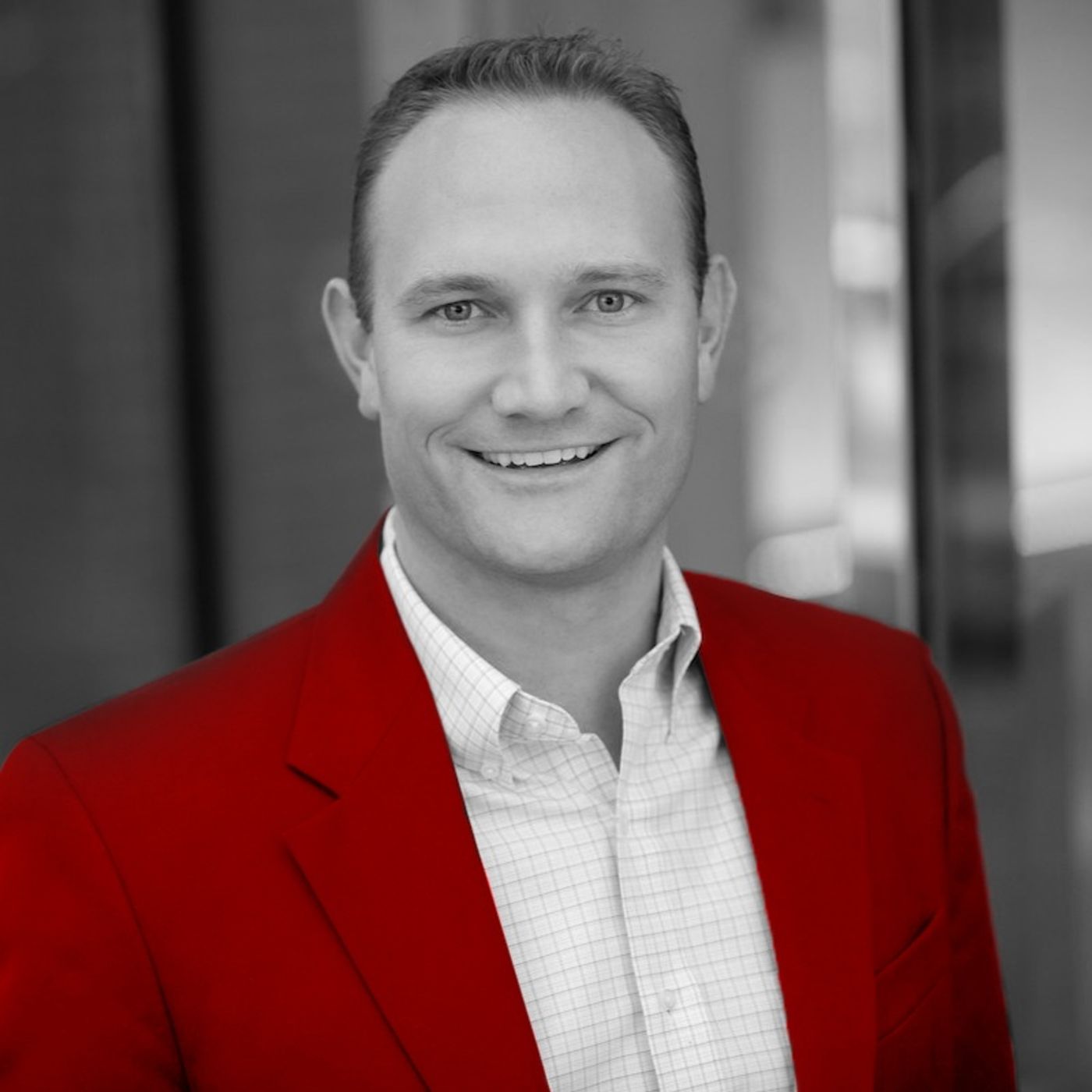
Innovative Ways to Support Managers So They Can Lead Effectively: NVA's Clint Kofford
Clint Kofford, the Vice President of Talent with National Veterinary Associates, has a unique perspective on what it means to be a leader in today’s changing landscape. With extensive experience in numerous multinational companies, Clint is a thought leader in this space. His fascinating viewpoints caused us both to stop and think and even changed our minds about certain issues. Press play to hear what they are and to see if his views might broaden your perspective. Learn moreEnd-of-Season WebinarDon't miss our season recap, where we will summarize key themes, share critical insights and anecdotes, and identify our questions on how to make managing more manageable.Register todayConnect with Clint KoffordConnect with Clint on LinkedInBOOK - Creating Meaningful Change by Clint KoffordConnect With Red Thread ResearchWebsite: Red Thread ResearchOn LinkedInOn FacebookOn TwitterWant full access to the episode's transcript? Try our RTR membership with a 7-day trial. Listen to our top episodes, explore cutting-edge research, attend exclusive member-only events, and share with a top-notch cohort community of industry leaders and peers. Take it for a spin!
51:5431/01/2023
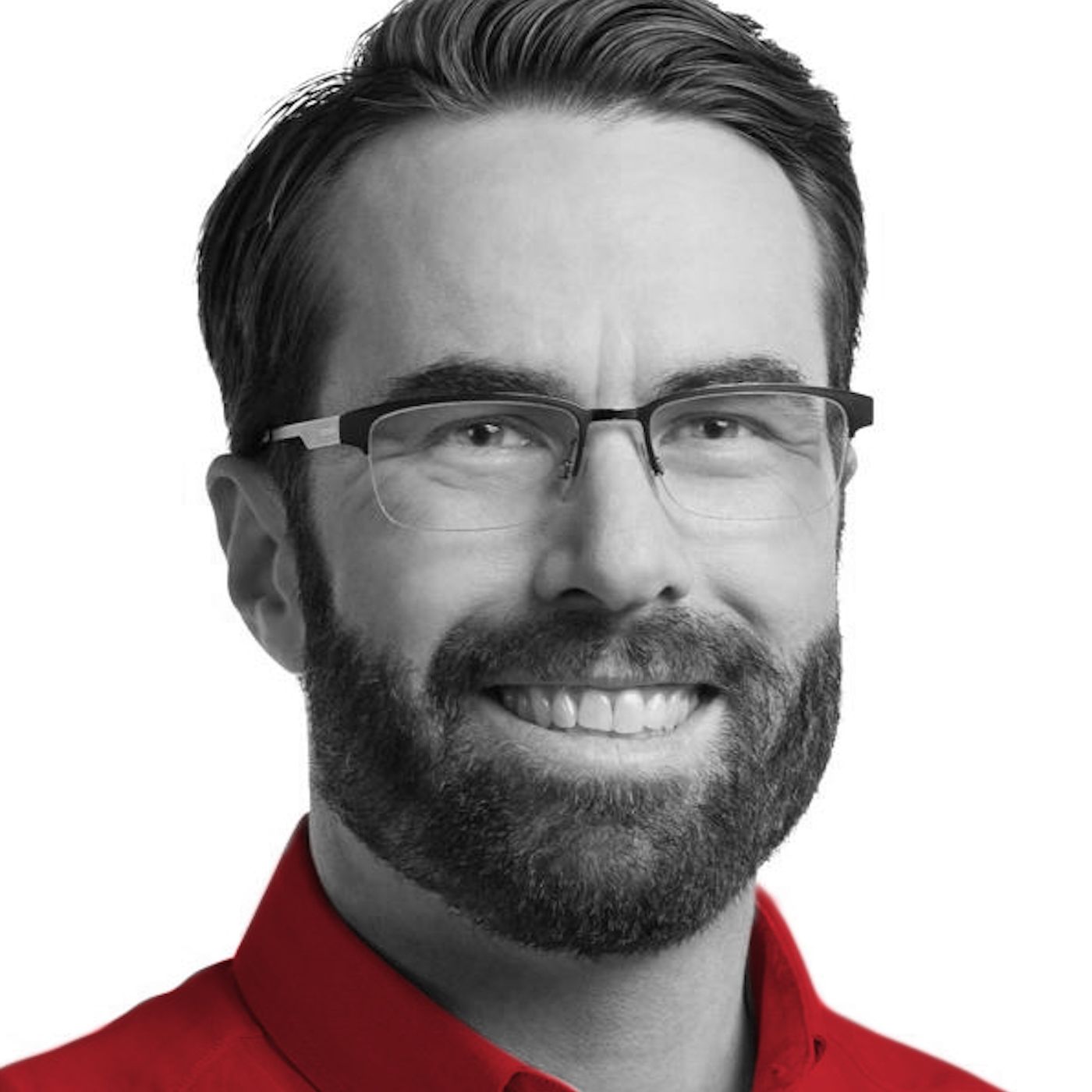
If You Don’t Have The Data, You Can’t Do The EX: Workday’s Phil Willburn
Phil Willburn—our Season Sponsor Workday’s Vice President, People Analytics—makes a very welcome second appearance on ‘Workplace Stories,’ where he shares genuinely useful EX best practice. Does he have the definitive answer to our question, Evolution or Revolution? Listen to decide.
59:1727/12/2022

Yes, Even EX Has To Be Systematized: Marriott International's Jessica Lee
Jessica Lee, SVP of Global Talent Development at Marriott International & The Ritz-Carlton Leadership Center, shares her insights into how to create a consistent and supportive EX across the hotel giant’s 30-plus brands.
01:05:0313/12/2022
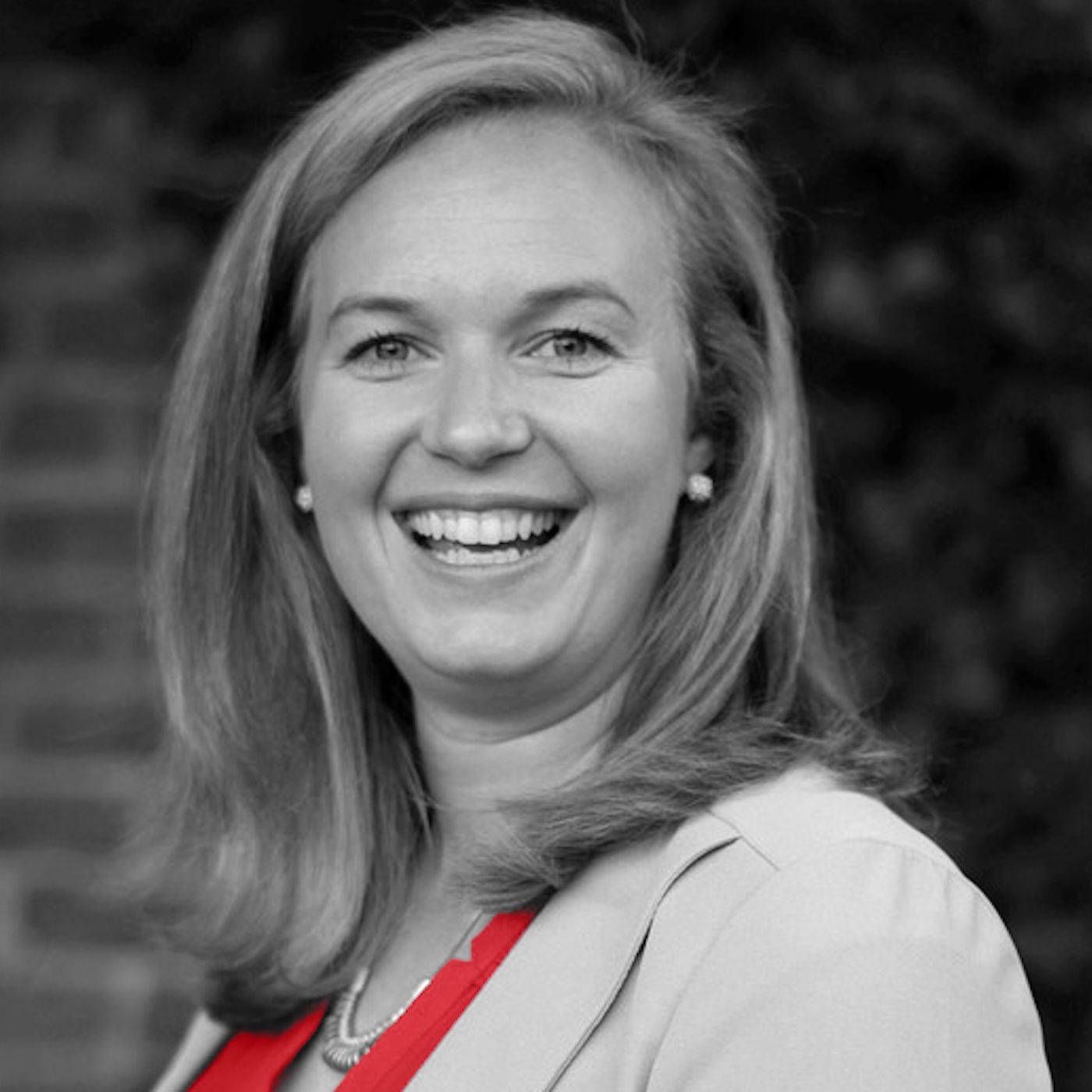
Why We Need to Rip Out and Replace the Employee Experience: Meta’s Kelly Monahan
If Meta wants us all to work at least some of the time in a Metaverse, it probably wants to figure out what the right Employee Experience is to get there. Kelly Monahan's making sure that happens.
53:1229/11/2022

Why Both Little ‘E’ and Big ‘E’ Employee Experience Count: Eskalera’s Dane Holmes
Former Goldman CPO Dane Holmes wants to remind us all of a huge truth: processes may end—but people don’t (you don’t stop learning once you’ve completed your module). So why don’t we look at Employee Experience that way?
52:4015/11/2022
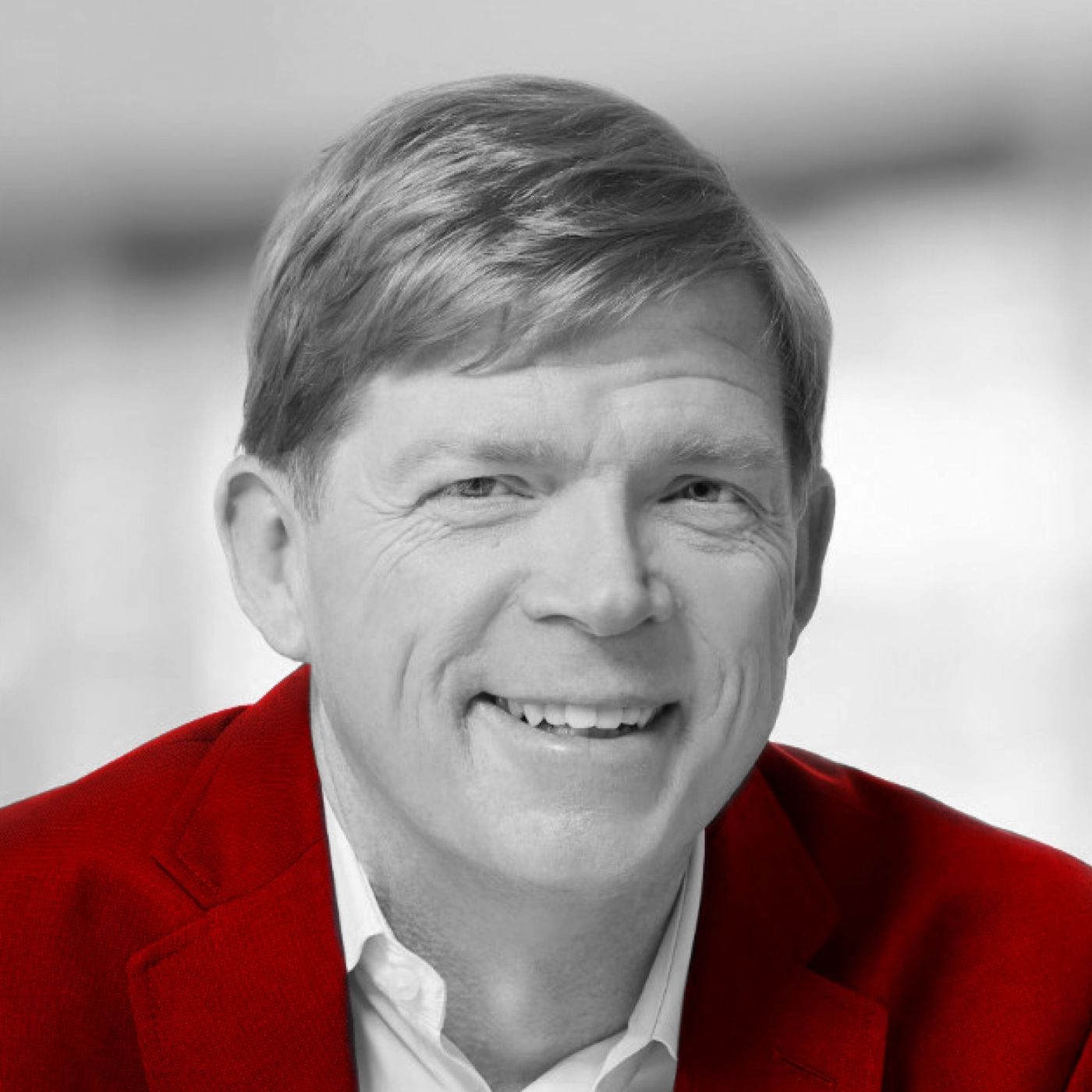
Why Learning Is the Engine of Employee Experience: Walmart’s Brandon Carson
For Vice President of Learning and Leadership at Walmart Brandon Carson, the systems we put in place ARE the employee experience. And if we want to change that, we need to help not just the cognitive worker, but that often-neglected other constituency in the EX debate—their physical worker equivalents.
42:3101/11/2022

You Can't Change EX Without Understanding People: Author Ashley Goodall
For leadership expert and author Ashley Goodall, we get the employee experience consistently wrong because we just don’t want to look at the way humans really are out-of-the-box. Is he right?
54:4918/10/2022
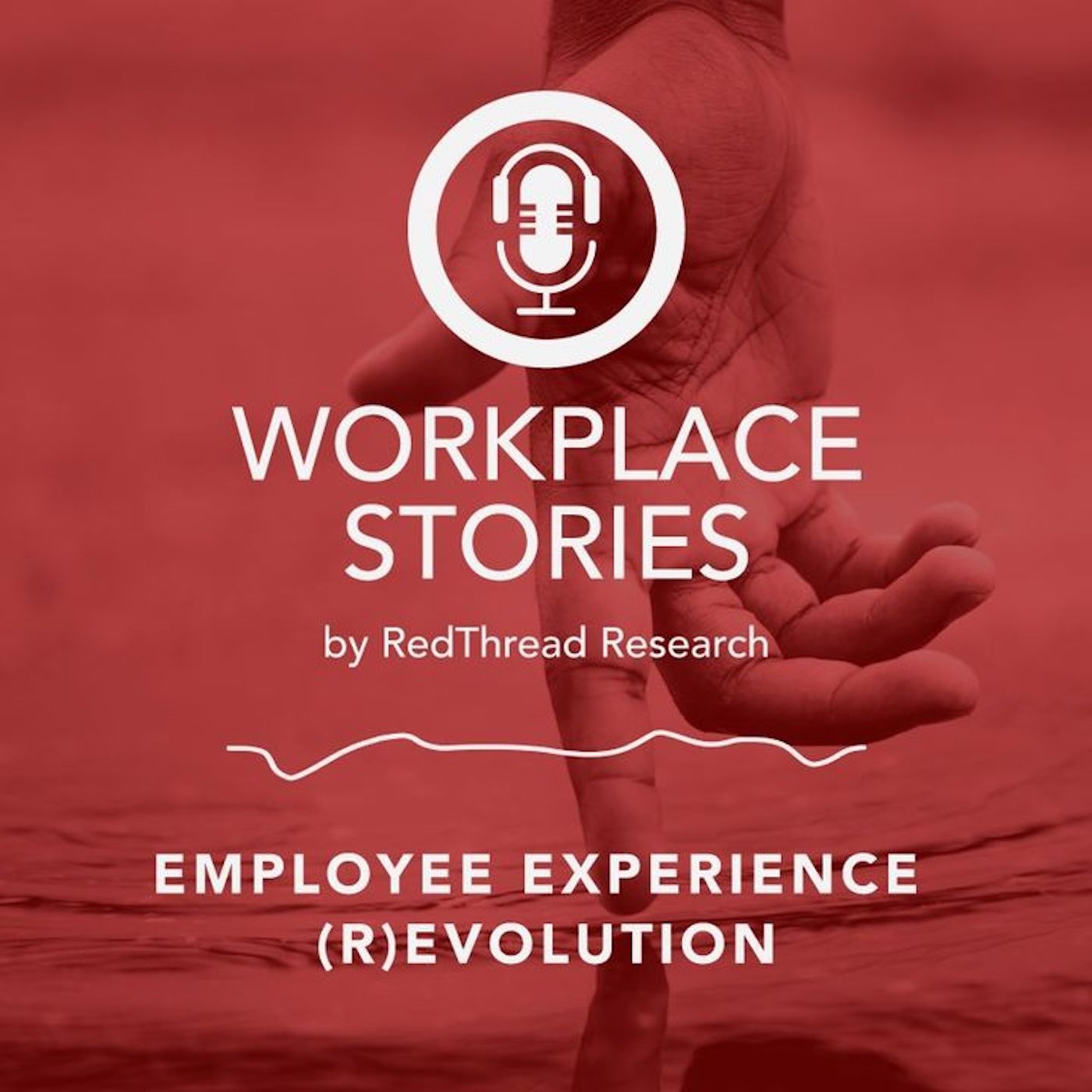
The Employee Experience (R)evolution: Opening Arguments
A scene-setter for our latest set of Workplace Stories—a deep dive into where we really are with EX right now.
15:0518/10/2022
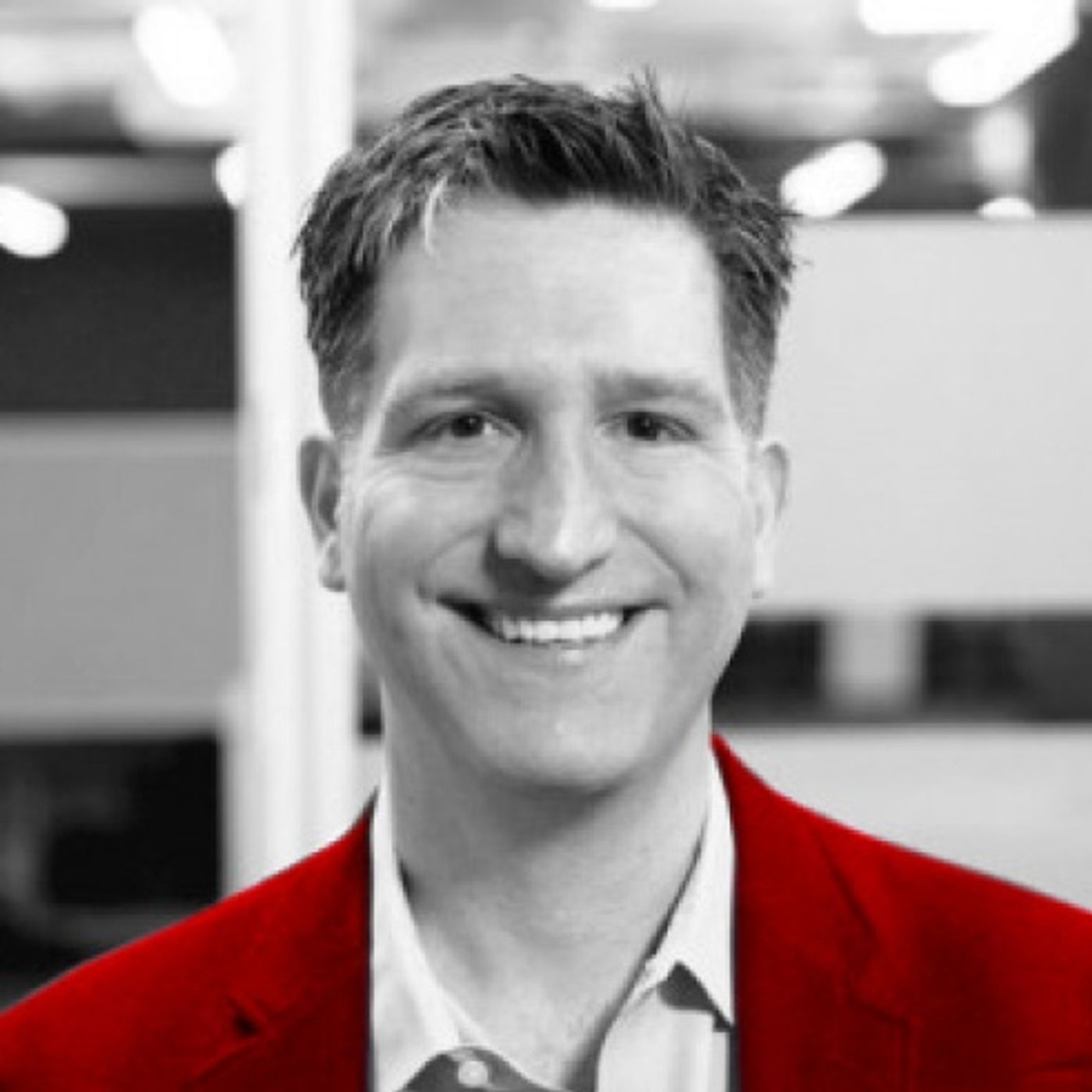
If We Don’t Connect, The Work Will Get Done—But It'll Never Be Great: Pretaa's Michael Madon
With a unique combination of experience across the worlds of the military, non-profit, government and commercial sector, mobile health entrepreneur Michael Madon shares what years of trying to make connection happen in organizations has taught him.
50:4327/09/2022

Using Connection To Build Successful Cultures: Udemy’s Melissa Daimler
In this episode, CLO at online education leader Udemy Melissa Daimler—who recently published a new book on making workplace reconnection work, ‘ReCulturing’—sits down with Chris and Stacia to detail practical steps on making our new complex workplaces human once again.
54:1127/09/2022

The Power of Connection: Thinker, Professor Dave Ulrich
It’s our special pleasure to share a conversation with renowned HR strategist Dave Ulrich around the importance of Connection and the practical steps leaders need to be making now to make it happen.
59:2013/09/2022
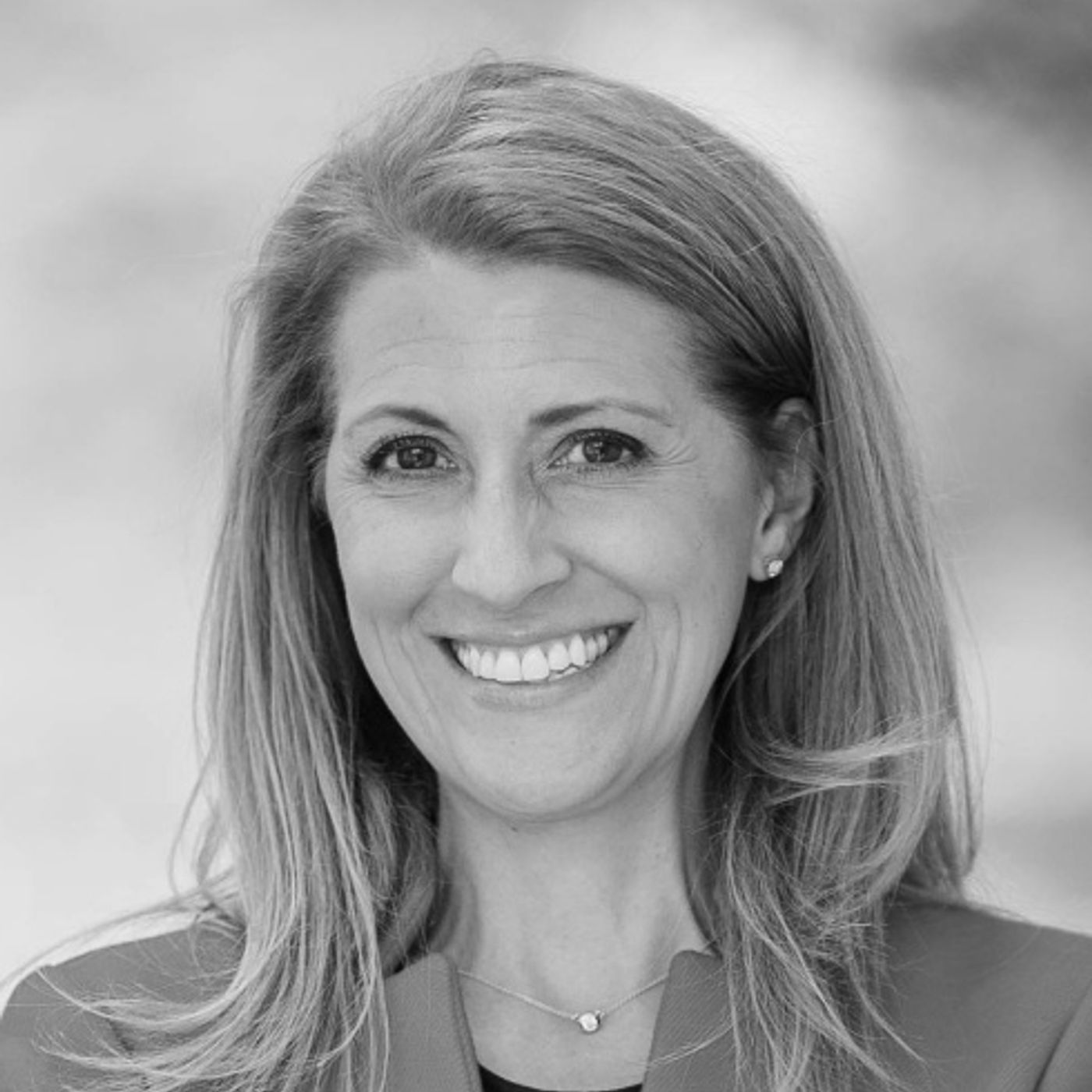
Firing Up Connection From Pre-Hire: Service Express's Gretchen Murphy
This week we sat down with Gretchen Murphy, CHRO of data center services specialist Service Express, to hear how only ever adding people who fit your culture but then constantly supporting them through conscious Reconnecting techniques really delivers.
50:0630/08/2022

Unsucking The Workplace Through Connection: Airtable’s Jessica Amortegui
Based out of San Francisco, Airtable is a fast-growing software product company with a mission to democratize software creation. It says it’s doing that by enabling anyone to build the tools that meet their needs, but is that focus on openness and collaboration talk or walk? In this next debate on how to make reconnecting real, we find out from a great conversation with the company’s Global Talent Development Leader, Jessica Amortegui, who has a lot to say about walking the walk—from the way her company is really taking on the problem of connection at the individual, human level, but also how to better facilitate connecting with others on a one-on-one, team, and entire organizational level. Even more interestingly; that happens on both the virtual (90% of her fellow ‘Airtablets’ joined during the pandemic) but also on the physical level—and as you’ll also hear, gets instantiated with well-thought-out and battle-tested role tools and exercises, which we’re delighted to say some of which Jess has shared with listeners. She also has some very useful things to say about the demonstrable value of all this even the most results-focused managers and connection ‘skeptics’ find persuasive. Finally, we loved her persuading us about the importance of connection in the flow of one's day-to-day work—making connecting not some special thing that you do in parallel but can be structured to be part of any meeting if you want it to be. All in all, so many great soundbites—but if you want just one, how about, “The thing I would love to switch about our workplaces is how many of us end the day exhausted and feeling de-energized. Why does it have to be that way?” Abso-tootle!
52:0216/08/2022
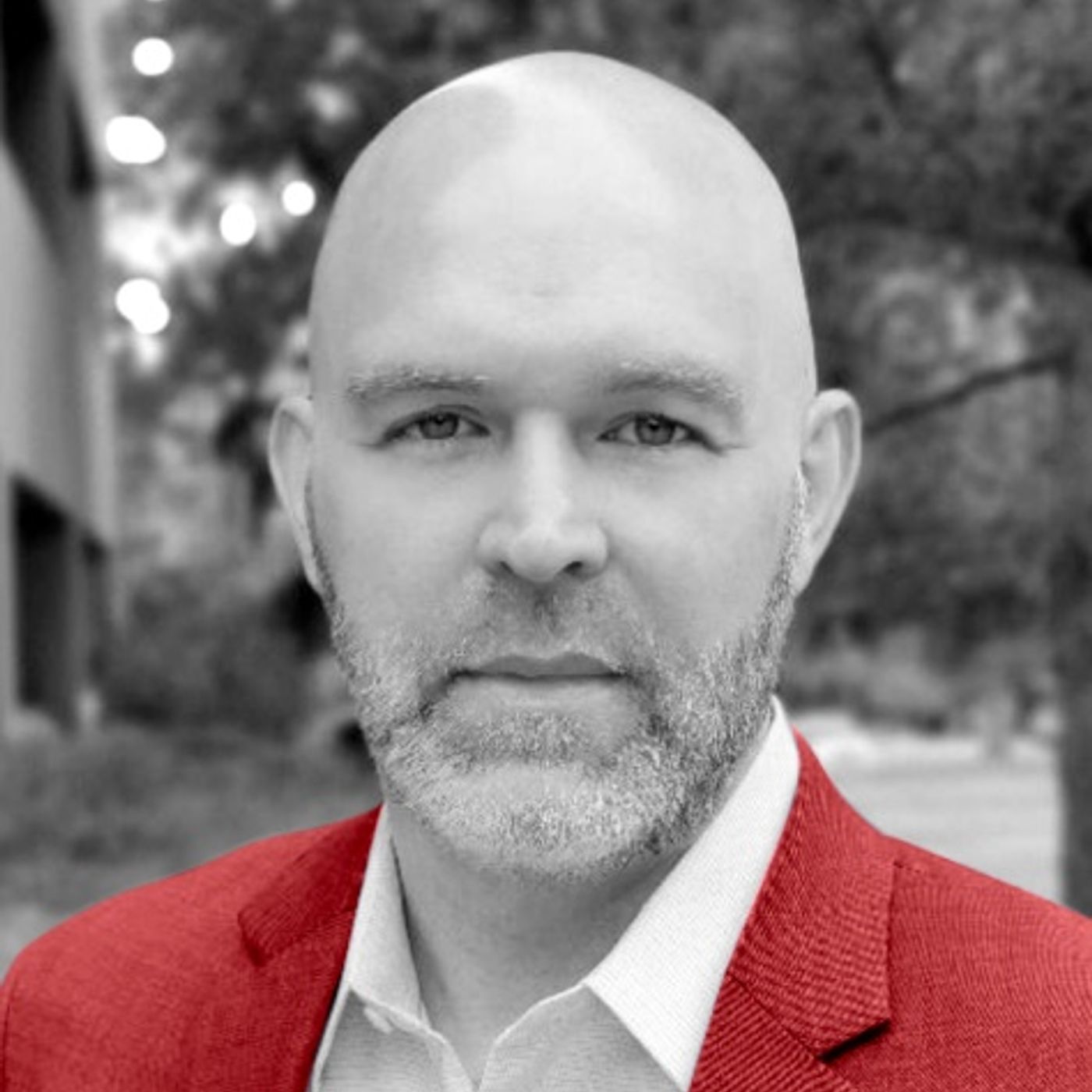
Reconnecting Via Purpose And Continual Career Conversations: UCHealth’s Matt Gosney
For our second conversation about The Great Reconnection, we sat down with Matt Gosney, Vice President, Organizational Development at UCHealth, a major Denver-based healthcare provider that’s grown rapidly in the past few years. To make that growth work, the organization has been consciously doing as much as it can to enable connection and growth. We wanted to know more, so got Matt on to hear why connection and growth are now seen as critical to UC Health's employment value proposition, and also a significantly contributor to recruiting and retention. We also talk about how some of UC Health's previous talent processes, especially performance management, weren’t really helping on the connection part, and what Matt and his team did about it. A powerful new concept that’s proving really helpful is supporting managers to have what UCHealth calls ‘career conversations’ with every single employee has unleashed a tidal wave of connection, engagement, and contribution. An unintended but very welcome consequences of that work have been a dramatic improvement in talent pipeline diversity and a more organic (and thus, successful) approach to DEIB. We conclude with a story about lifetime-long transferrable skills that nearly wraps one of our most fun yet also thoughtful conversations for a while. The one key quote? “Connection is a baseline antecedent to progress and delivery of results.” Sounds bang on to us.
48:2602/08/2022

Reconnecting Without Being Bad-Bossy: HR Thinker Liz Wiseman
We start our new S6 of Workplace Stories with an overview of the theme of the Season, how it links to the previous five, then talk to Liz Wiseman, CEO of the Wiseman Group and author of New York Times bestseller about how leaders can build connections to and between people, and more broadly to the organization, 'Multipliers.' As we hear, Liz’s purpose is to make work better for everyone by creating organizations where great leaders multiply intelligence, rather than draining it from the organization. What inspires Liz is working with and watching senior leaders to learn what good leadership looks like, and how anyone can be a smart leader that doesn’t shut down smarts of others. We then hear her views on how at present, many organizations are in the process of trying to recover from a period of enormous disconnection. Now, in a world of Hybrid and Remote Working, what must leaders do to build and facilitate connection? This is essential in creating a sense of purpose and community, both in and out of the organization, and to help leaders need to provide context for people’s work. For Liz, this has to be about explaining what the impact of work is, and how it connects with wider purpose, as without this, people can’t feel a sense of fulfilment in their work. She also shares her view on how people don’t want to be managed in general, they want to be led. Rather than doing a job, leaders are people who see what needs to be done. This is important in the context of the Great Resignation – employees must feel connected and a sense of purpose even if removed from their workplace and work friends. Finally, she offers practical ways to start The Great Reconnection.
01:14:3619/07/2022

Forget Balanced Work-Life And Think More Integrated: Panasonic's Lydia Wu
In this, our final episode for the Adventures in Hybrid Work Season, we end strong with a great sit-down with people analytics innovator and Head of Talent Analytics & Transformation at Panasonic USA, Lydia Wu. It’s the right last conversation for now on this important topic, we think, as Lydia gives us so much frontline reporting on the key issues we’ve identified in our conversations, like the importance of data and really listening to what your workforce actually wants in terms of return to office instead of what you think they want, which we’ve heard from others—but also topics we maybe didn’t get so much on, like the importance of the DEIB factor in Hybrid, and what we should be doing for managers in all this, not just the main employee base. The fact that Panasonic—which really isn’t just ‘the microwave people’—has such a wide spread of job roles, both desked and deskless, is also really important to think about. It all matters—and as Dani says in the episode, maybe it’s time to stop saying ‘Hybrid Work,’ because now it’s all now just… what Work is?
50:2828/06/2022





